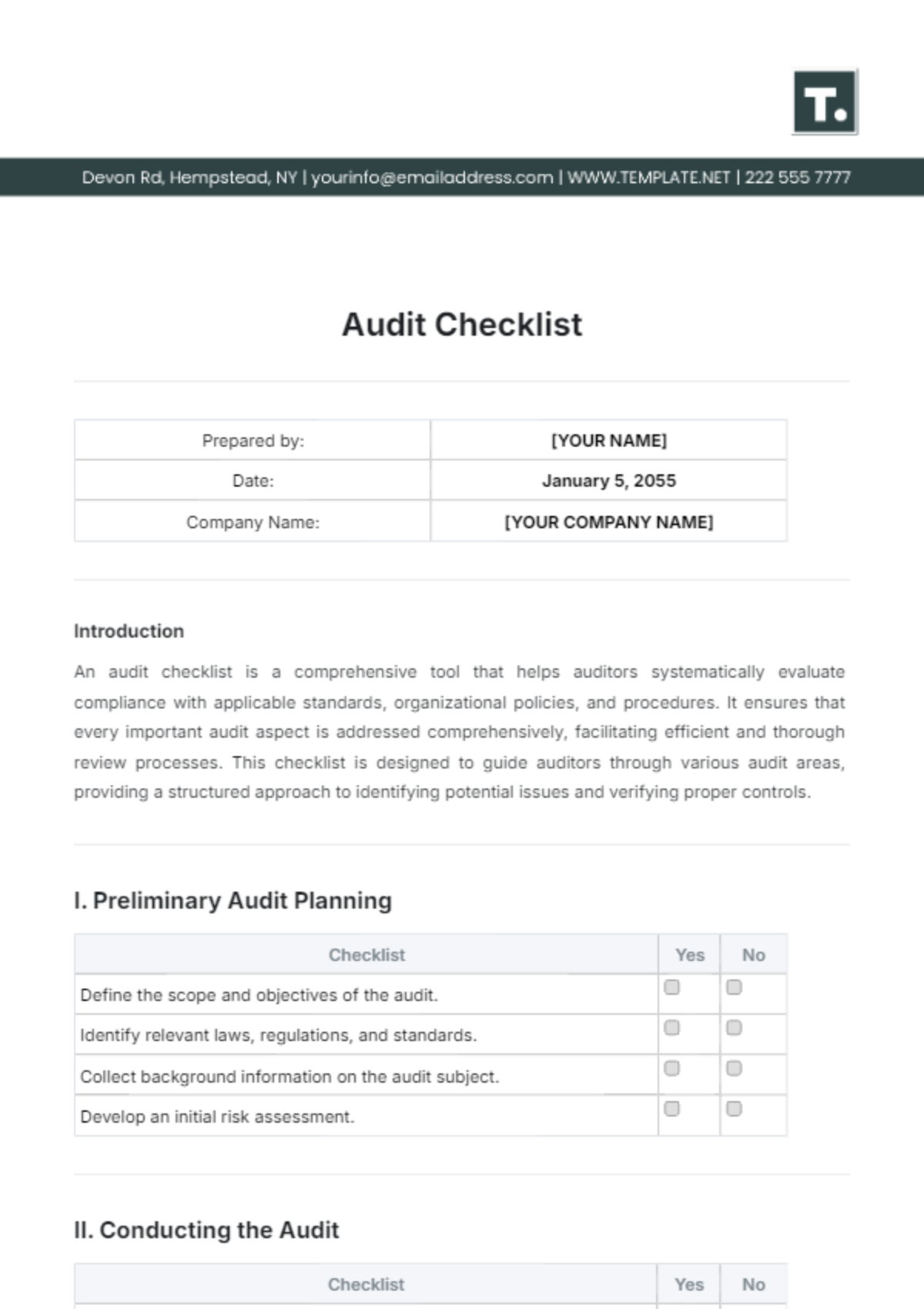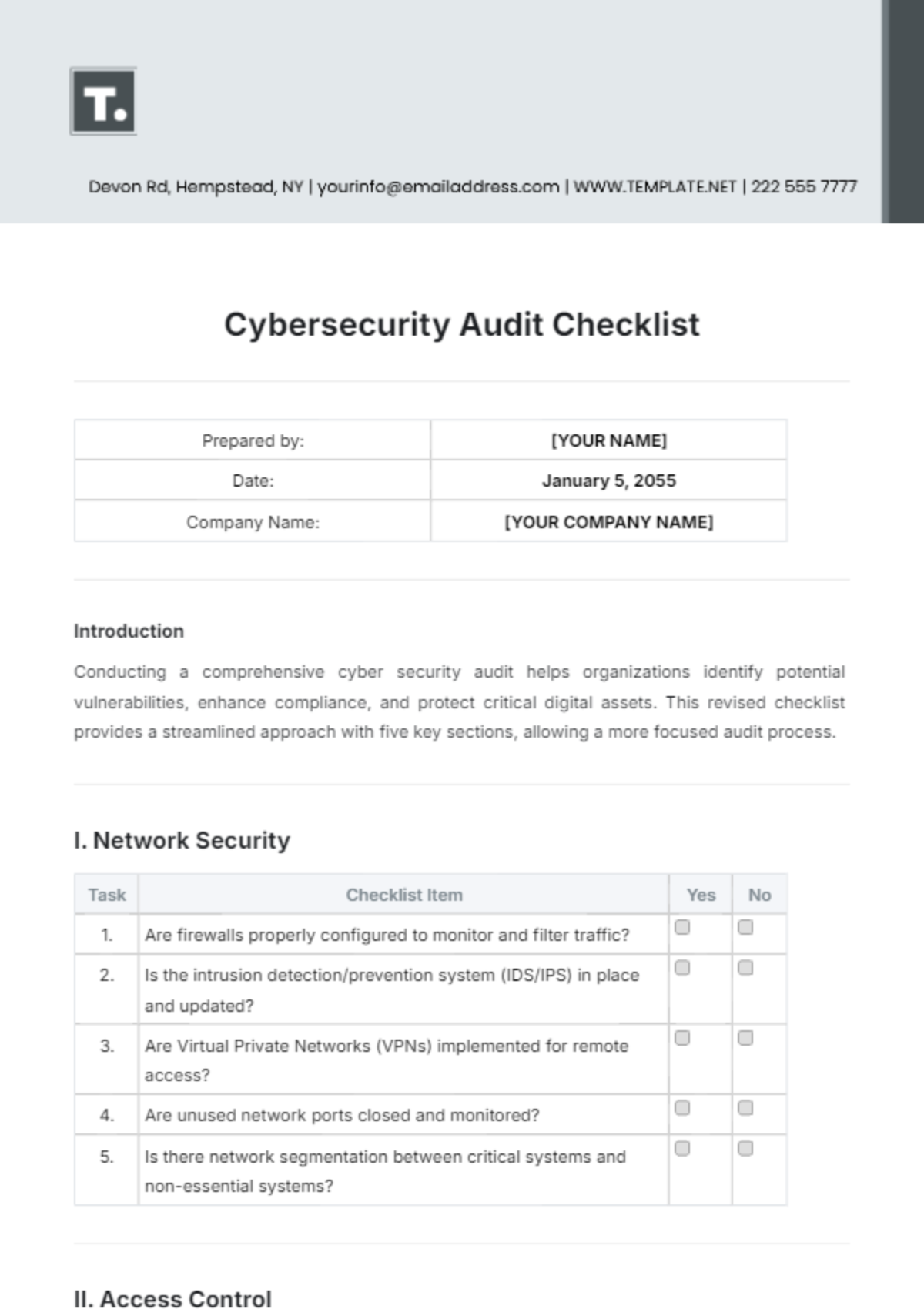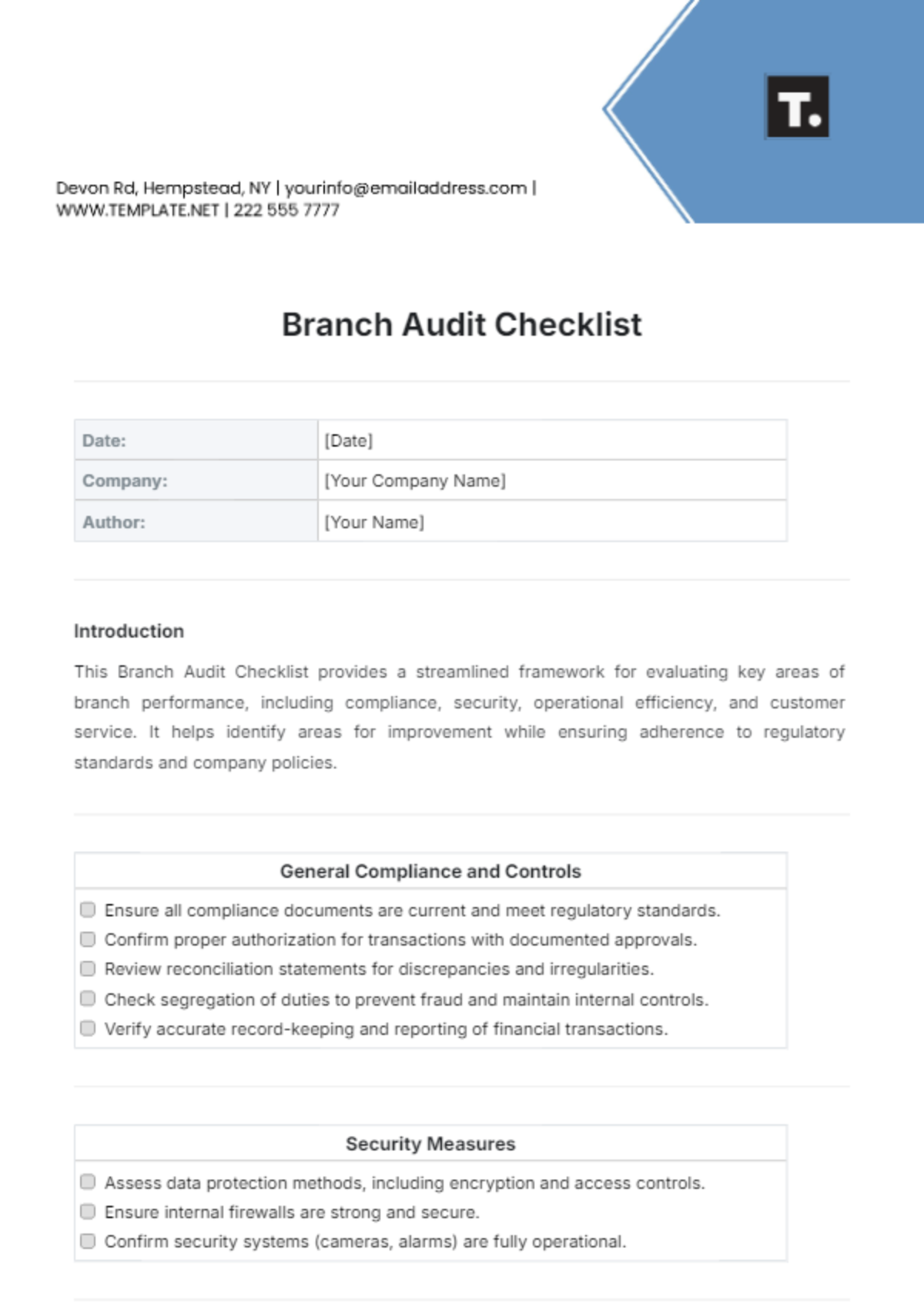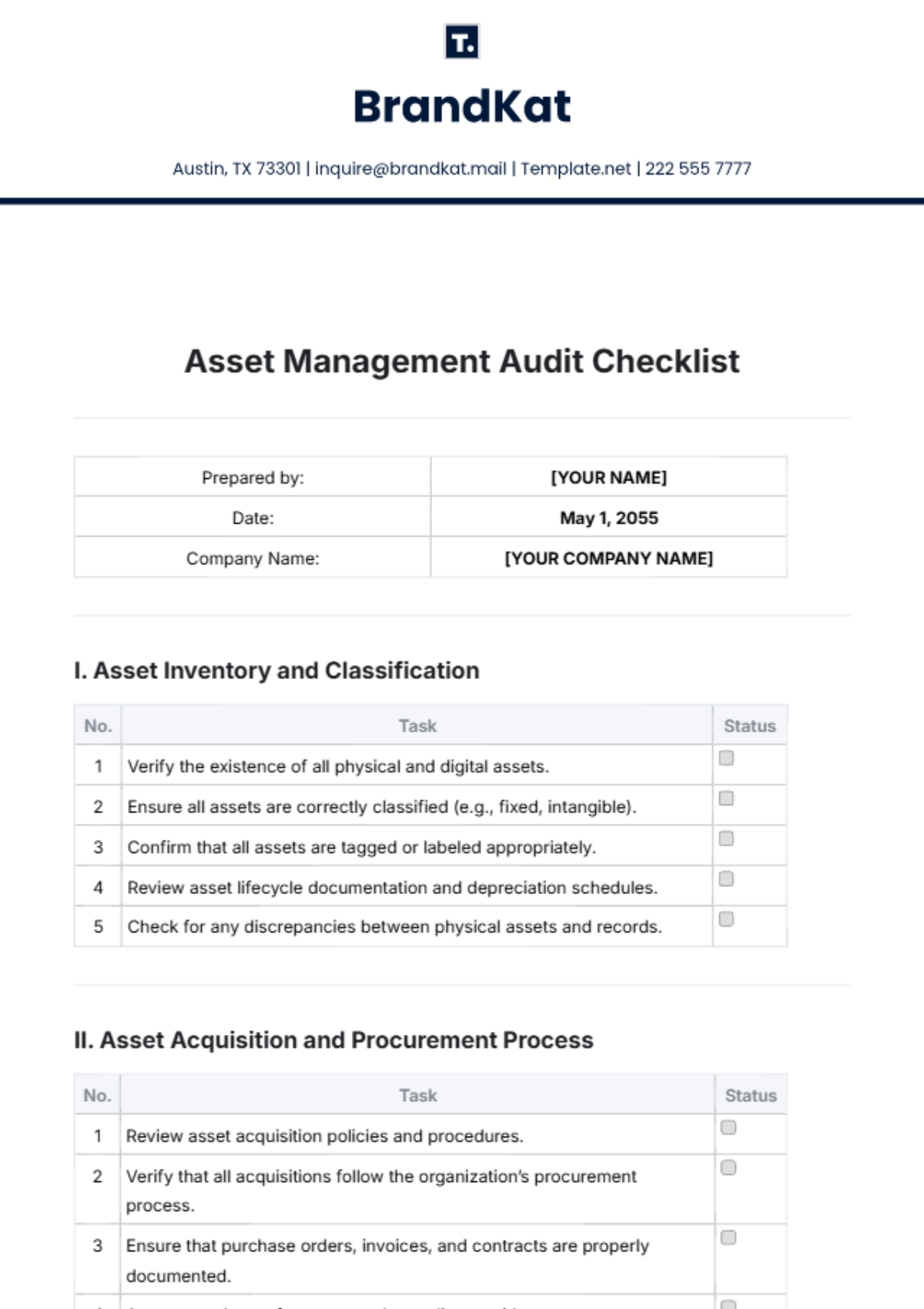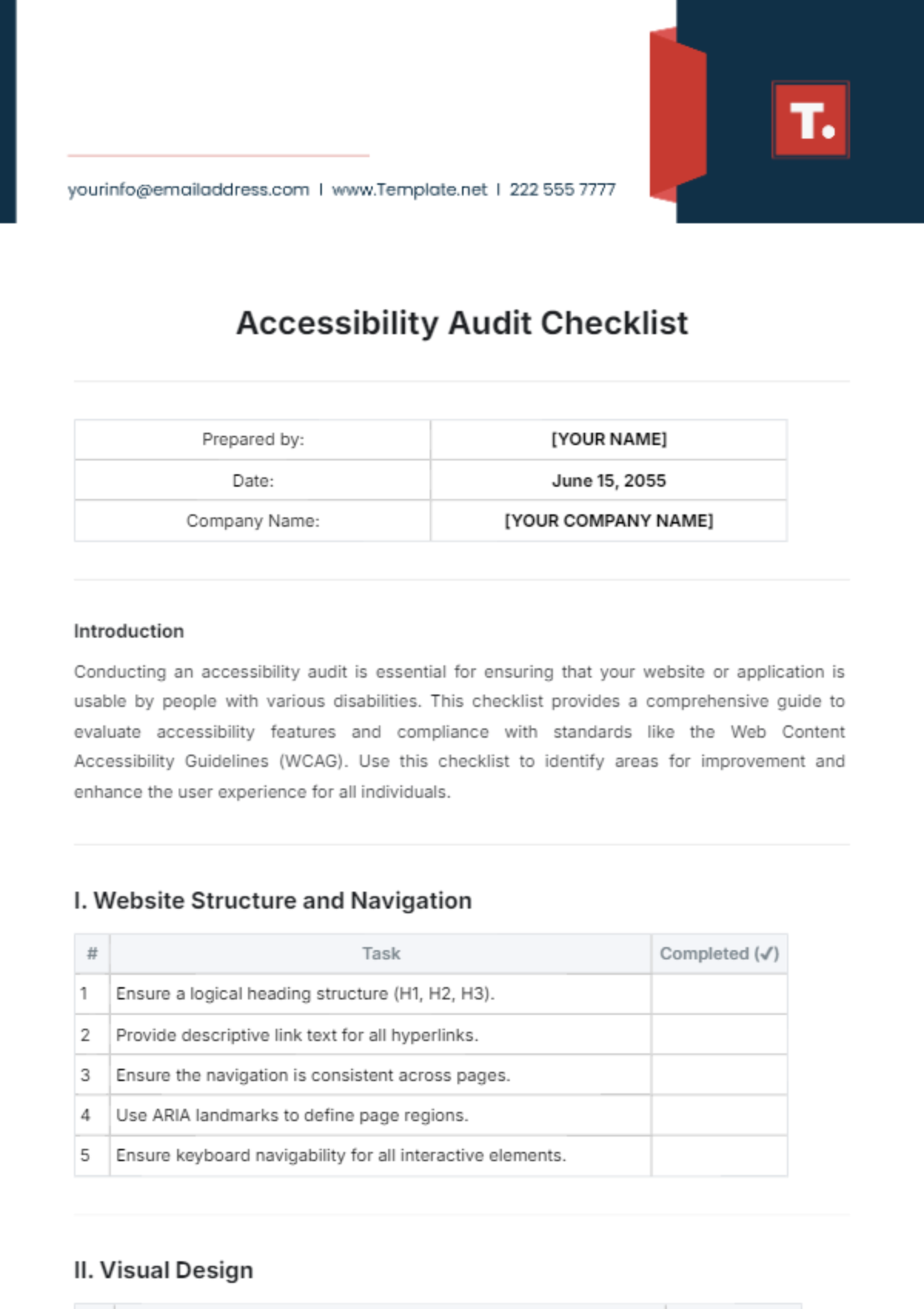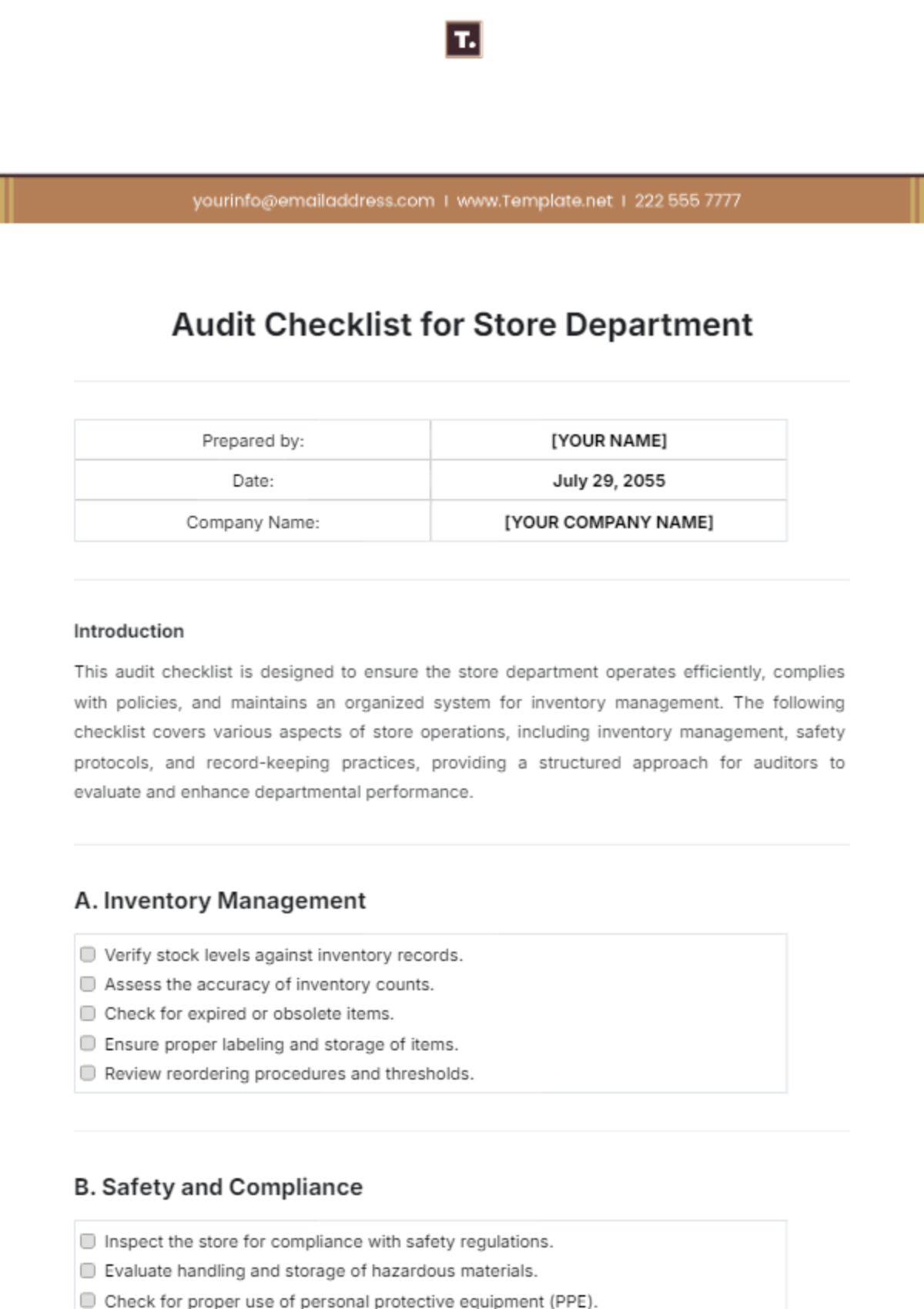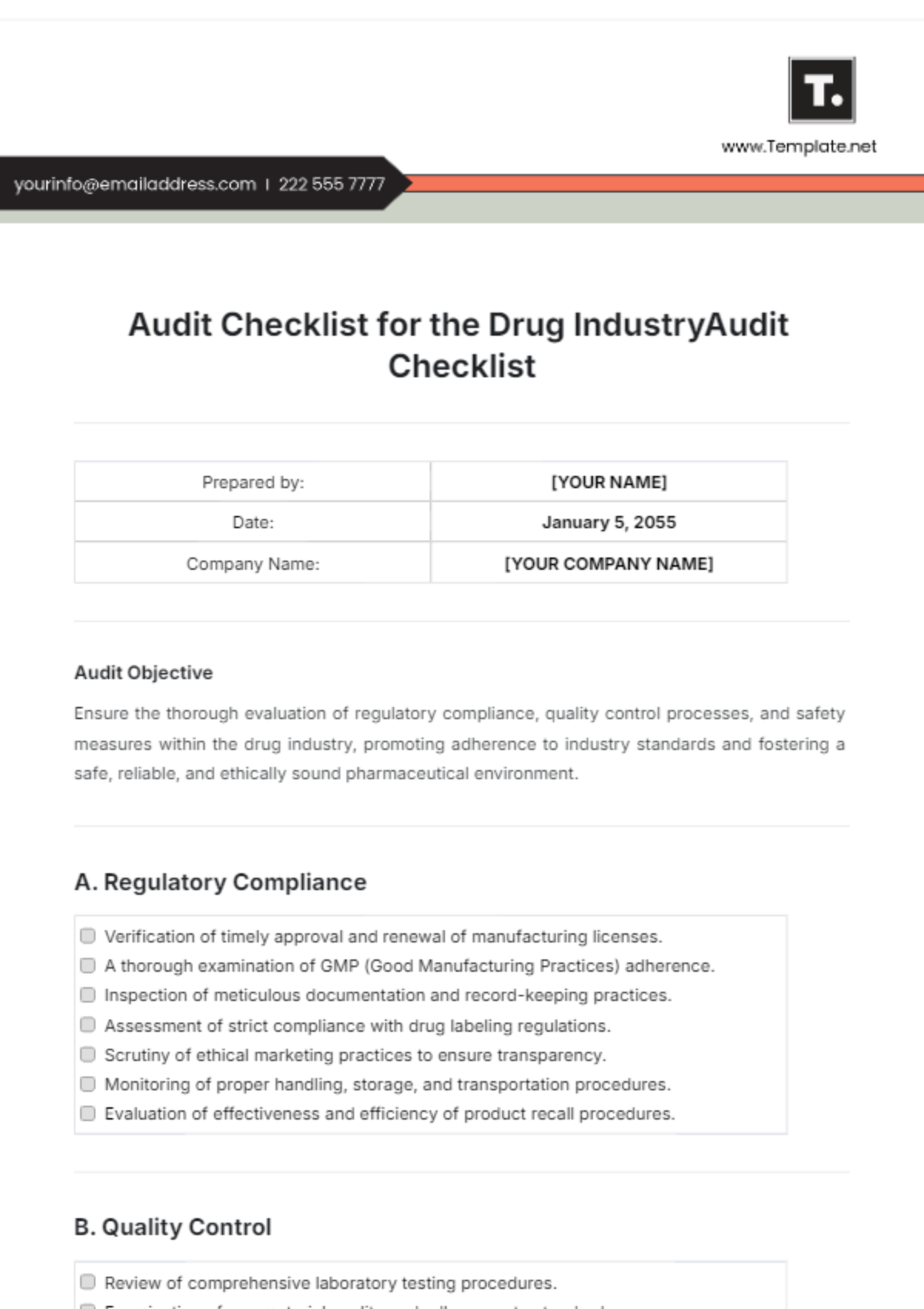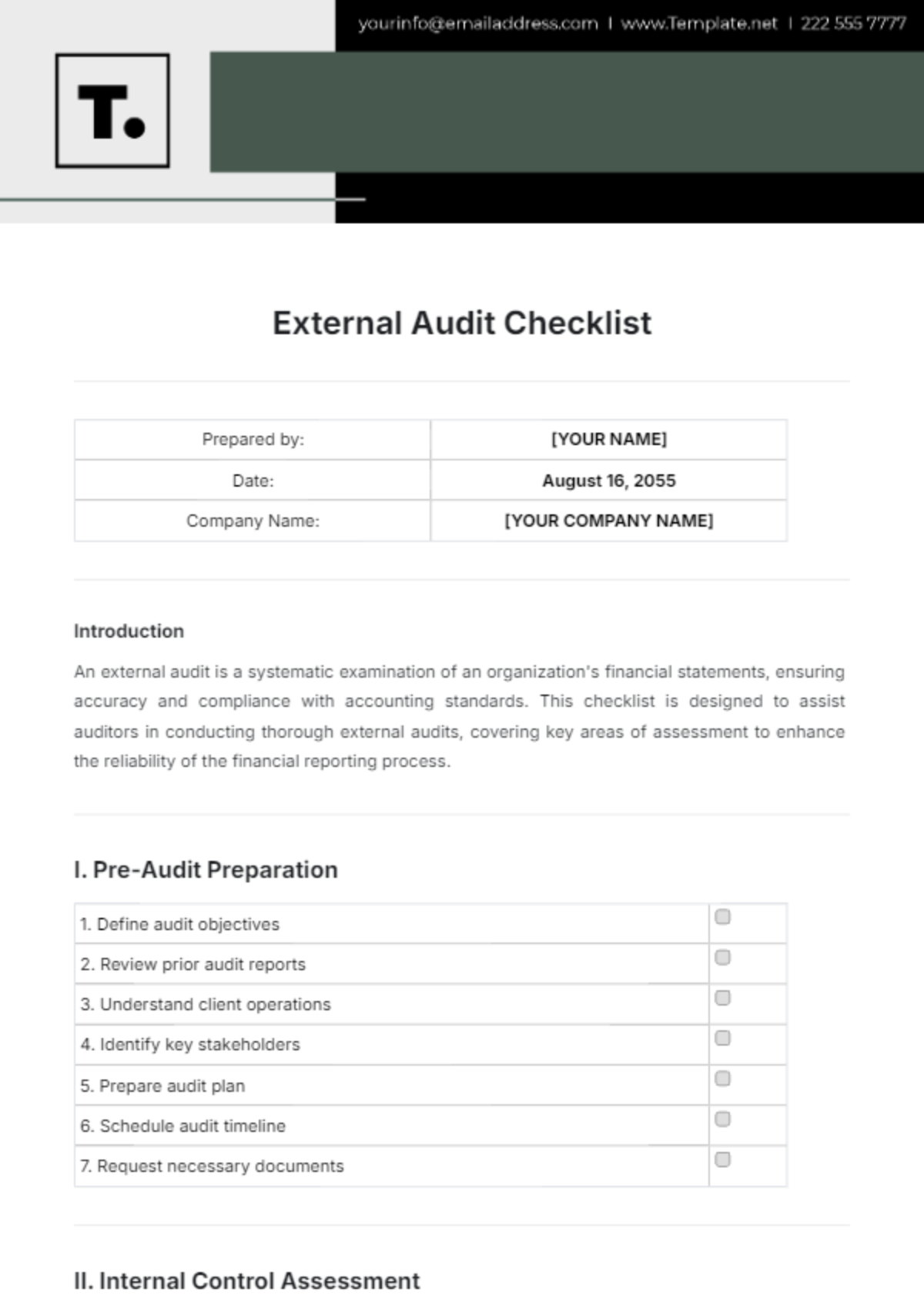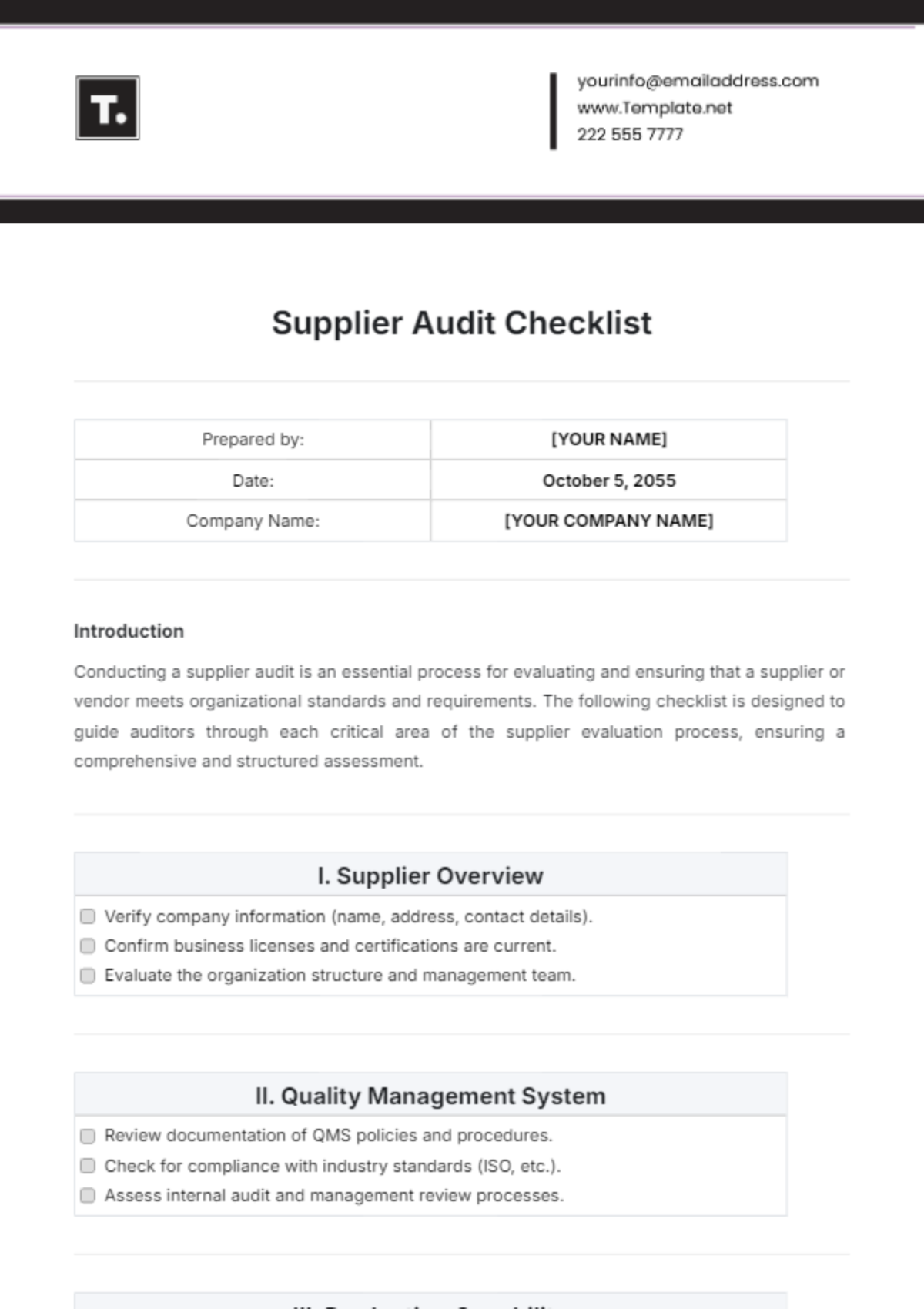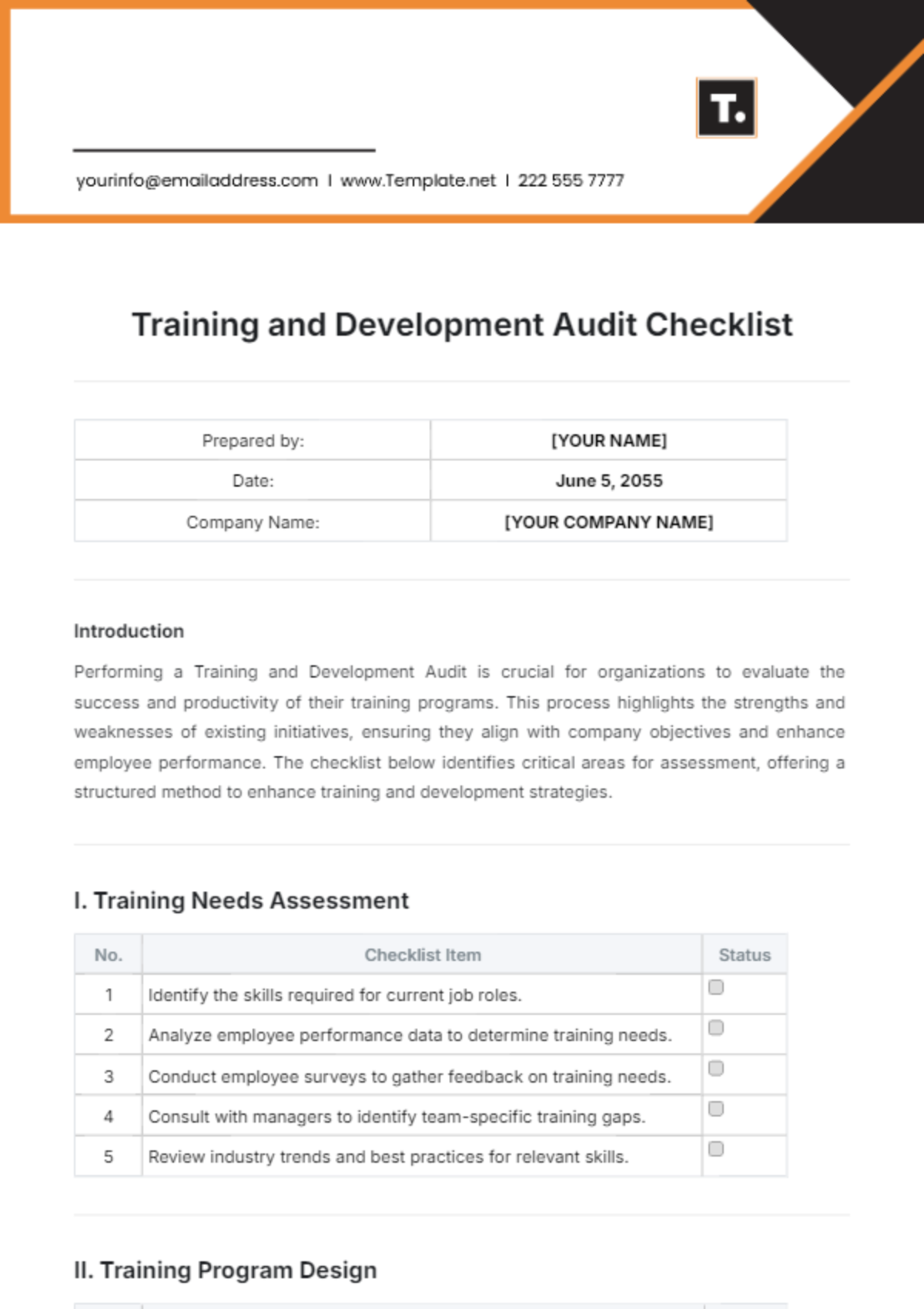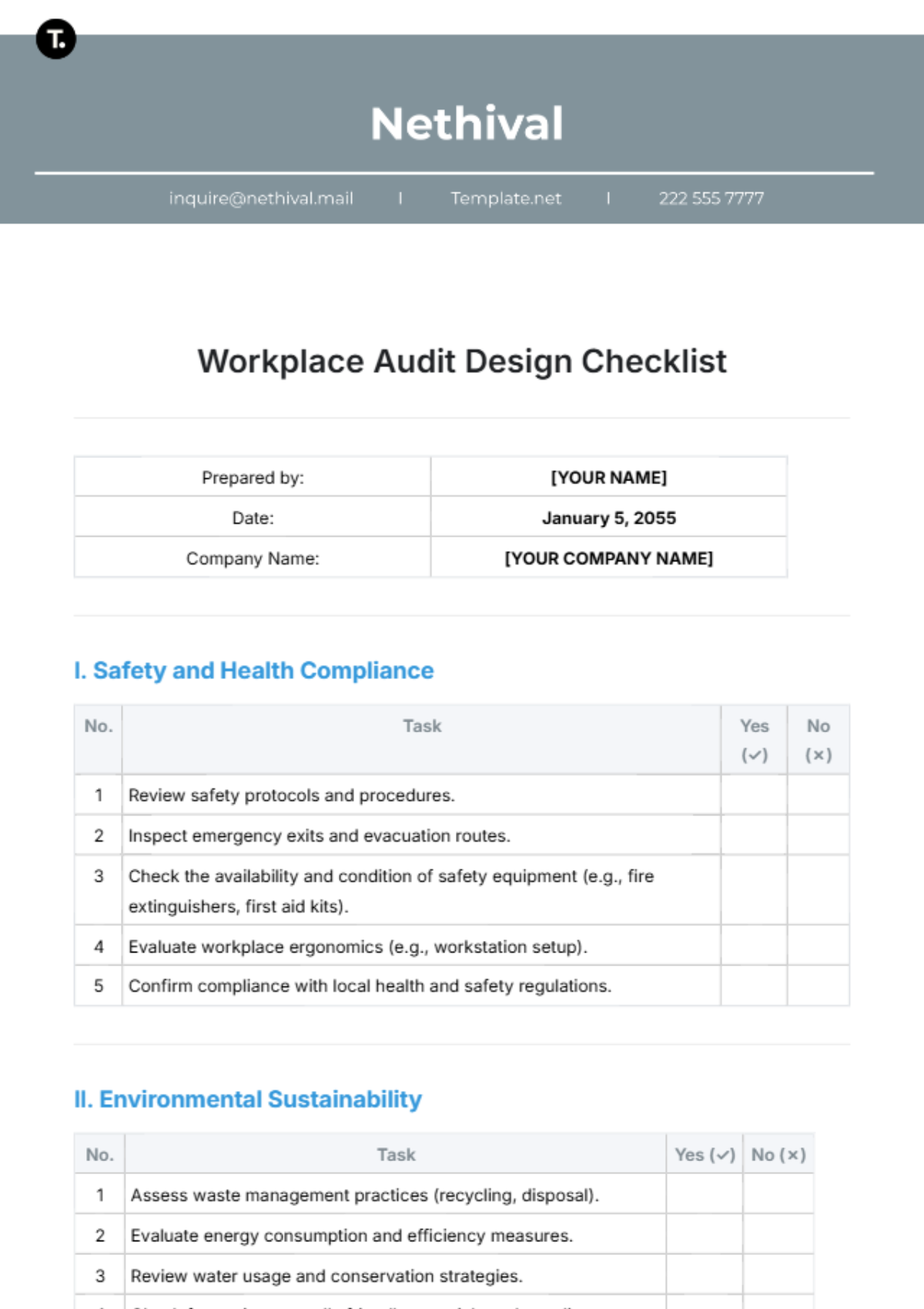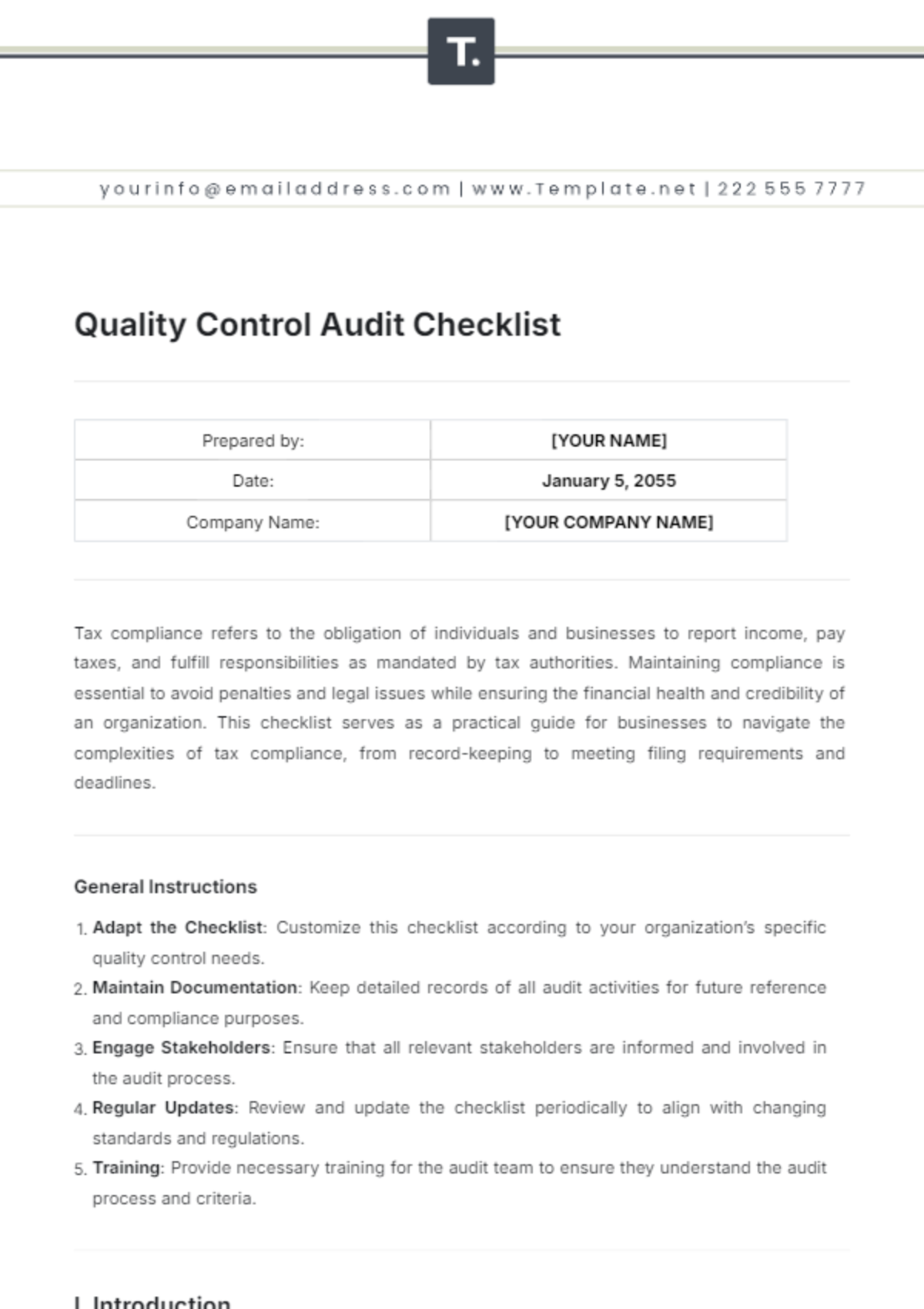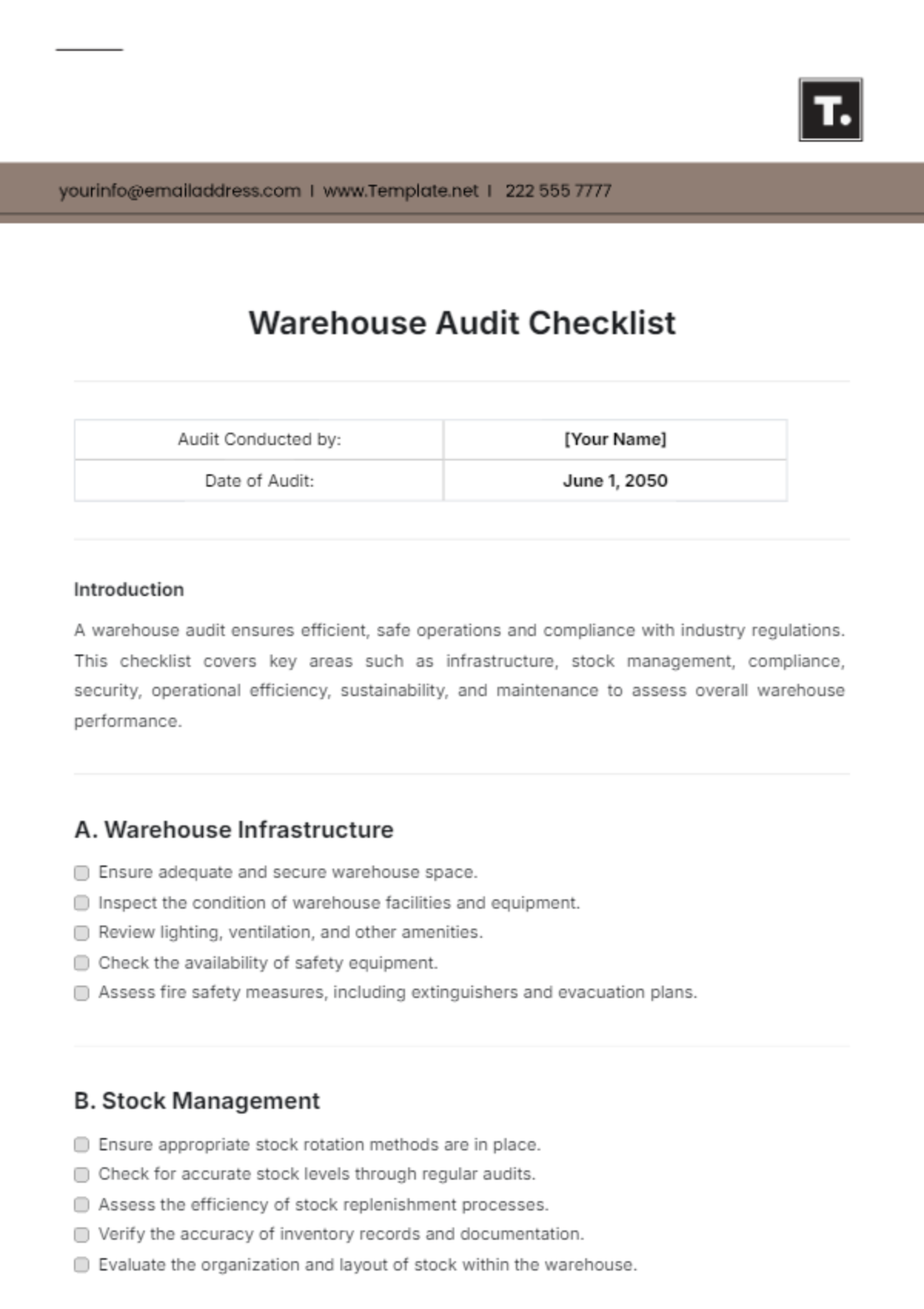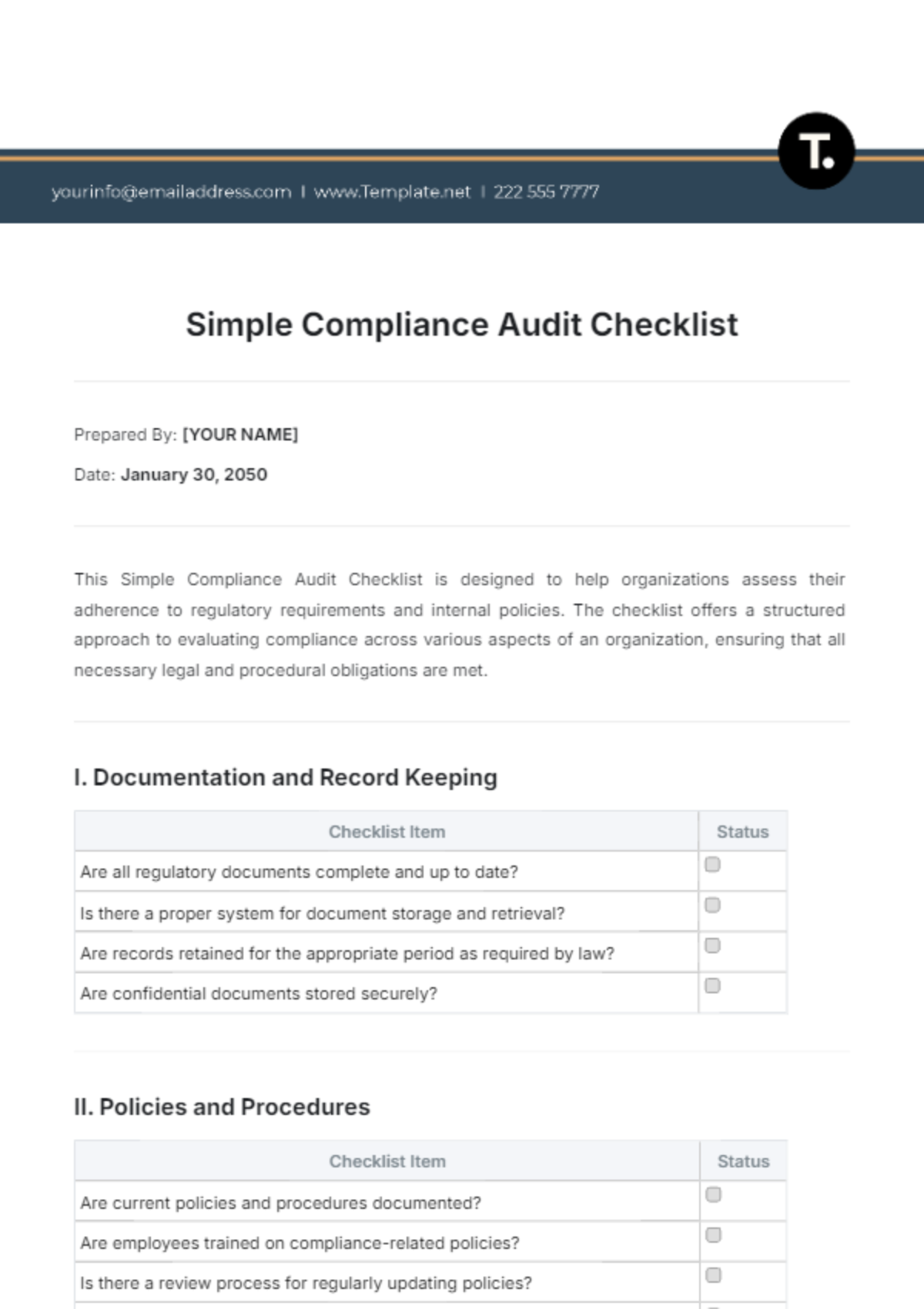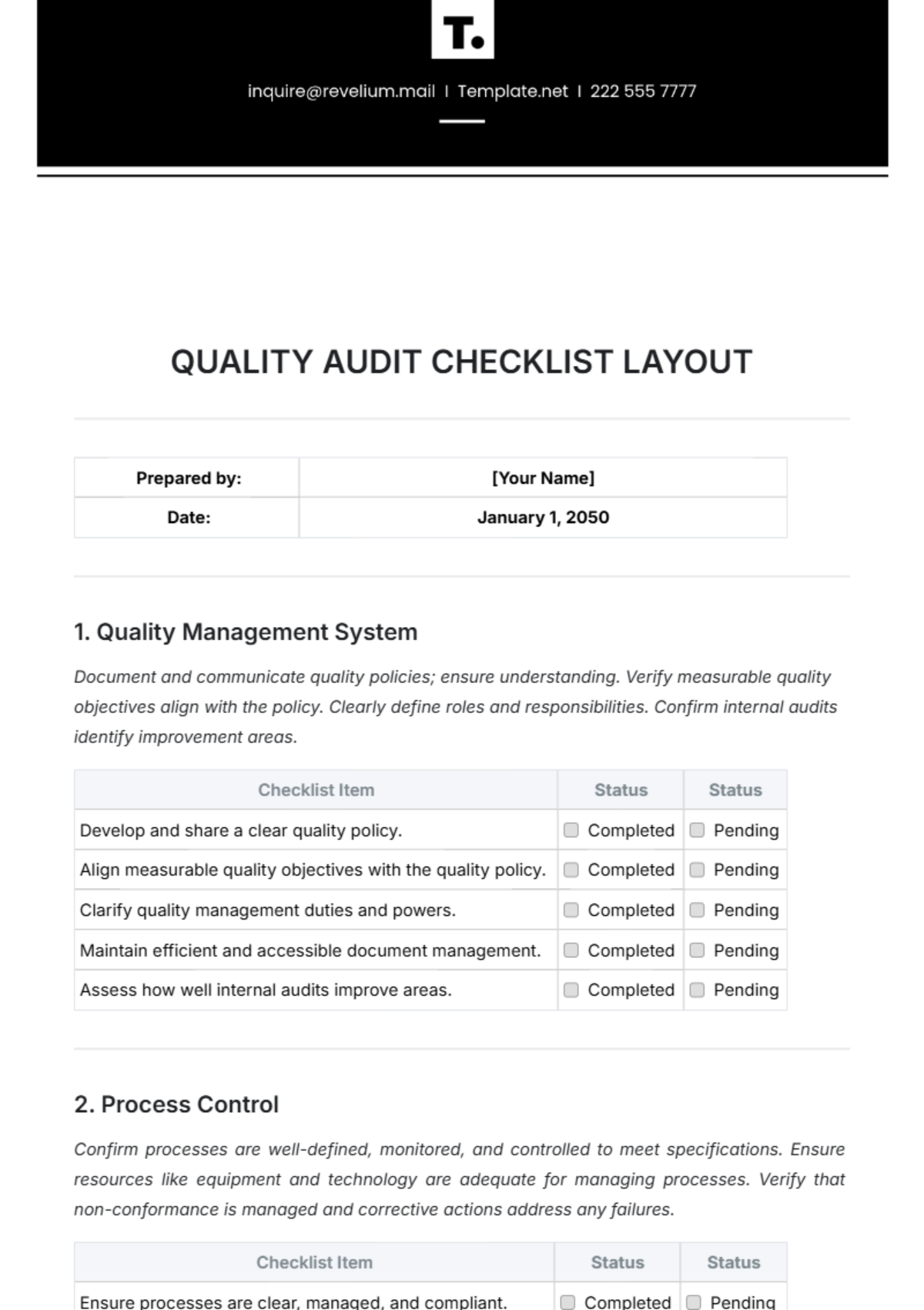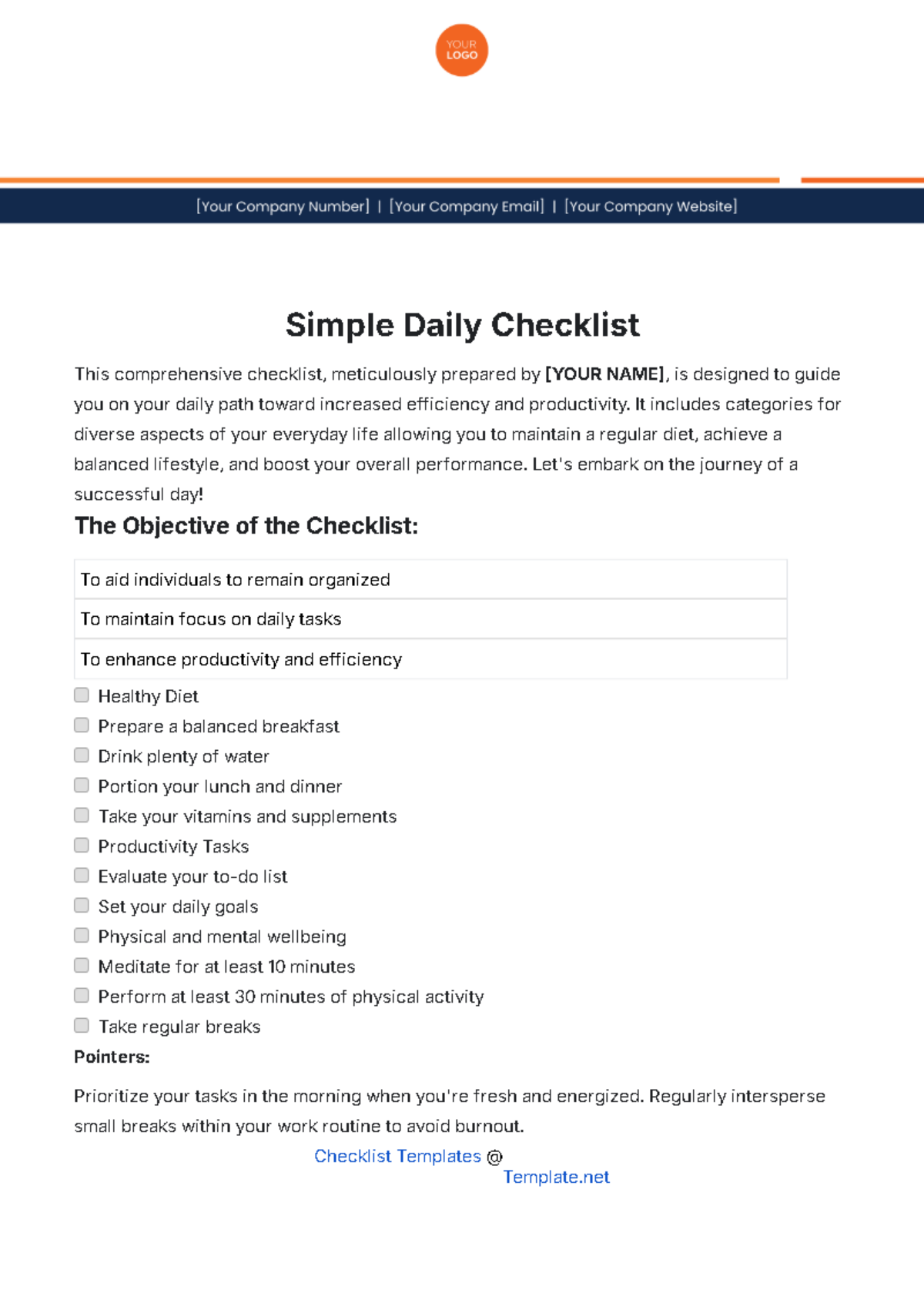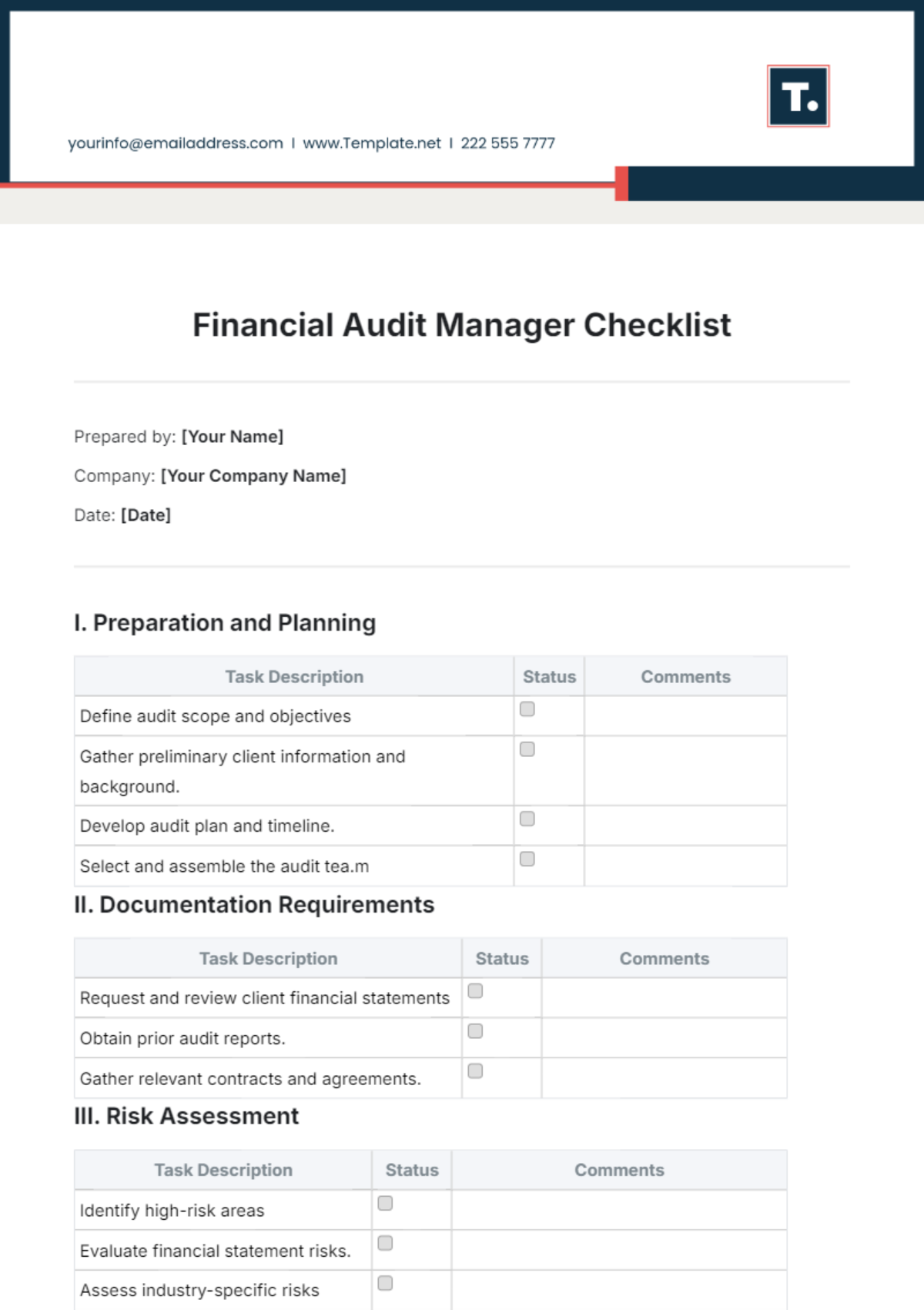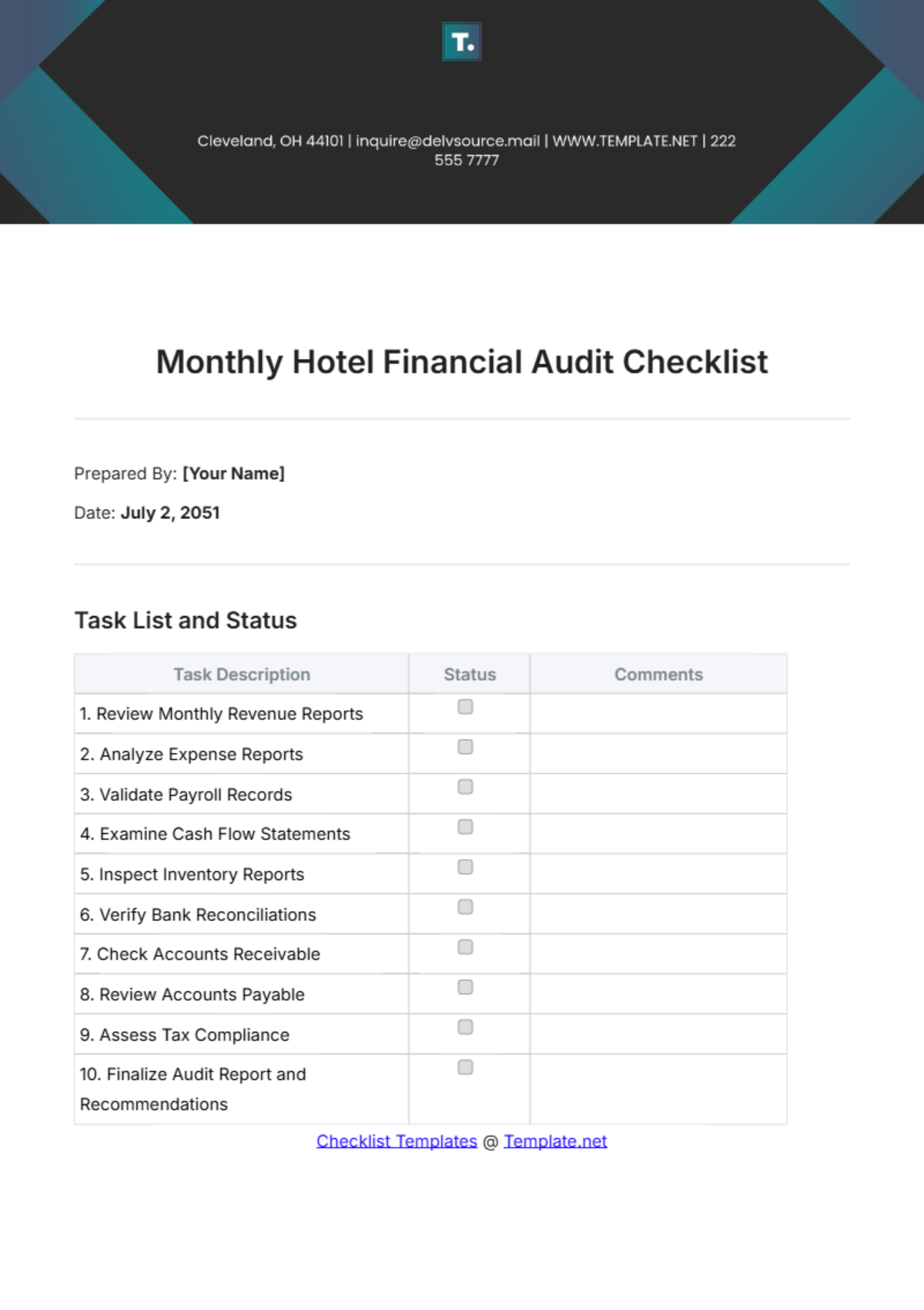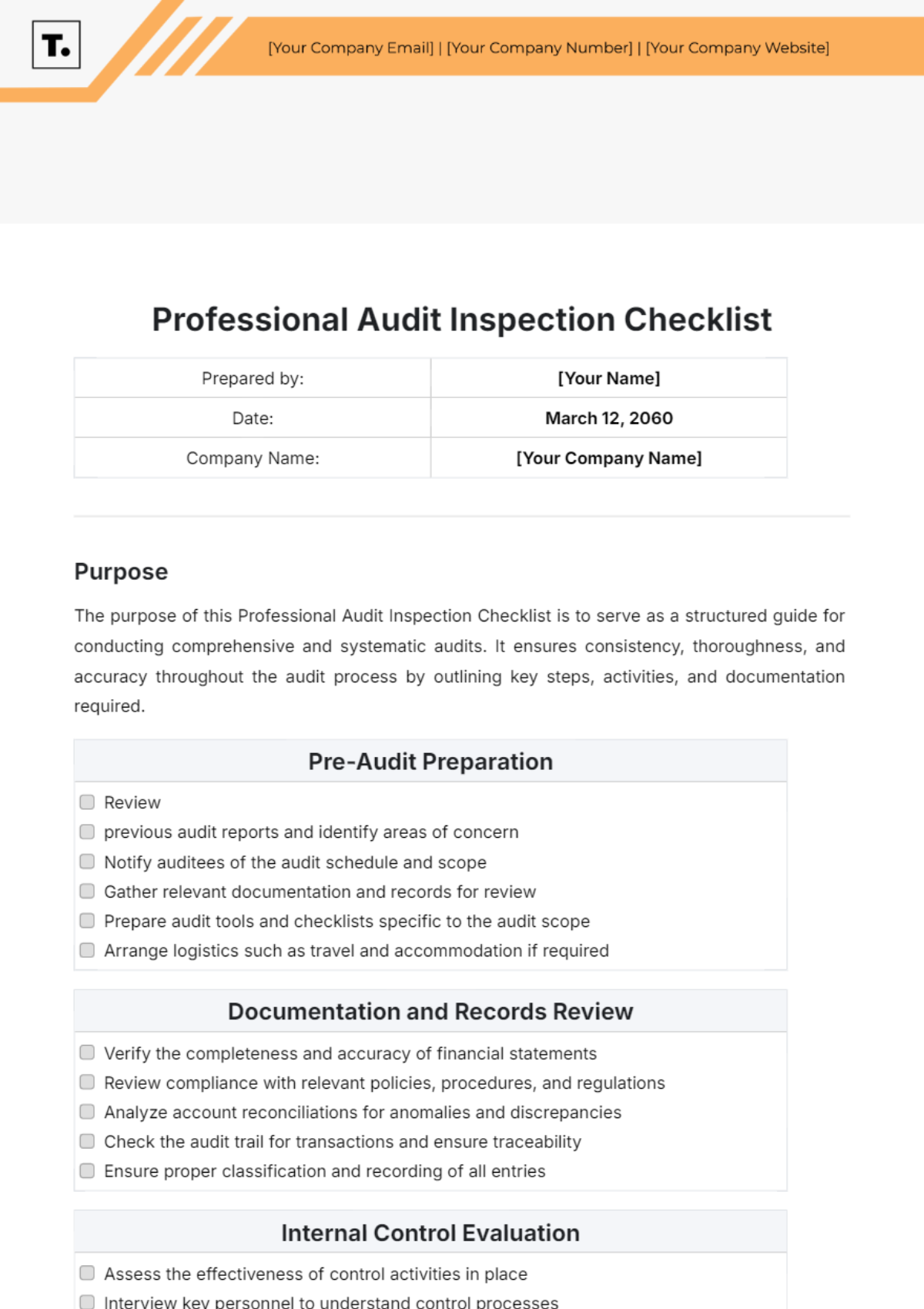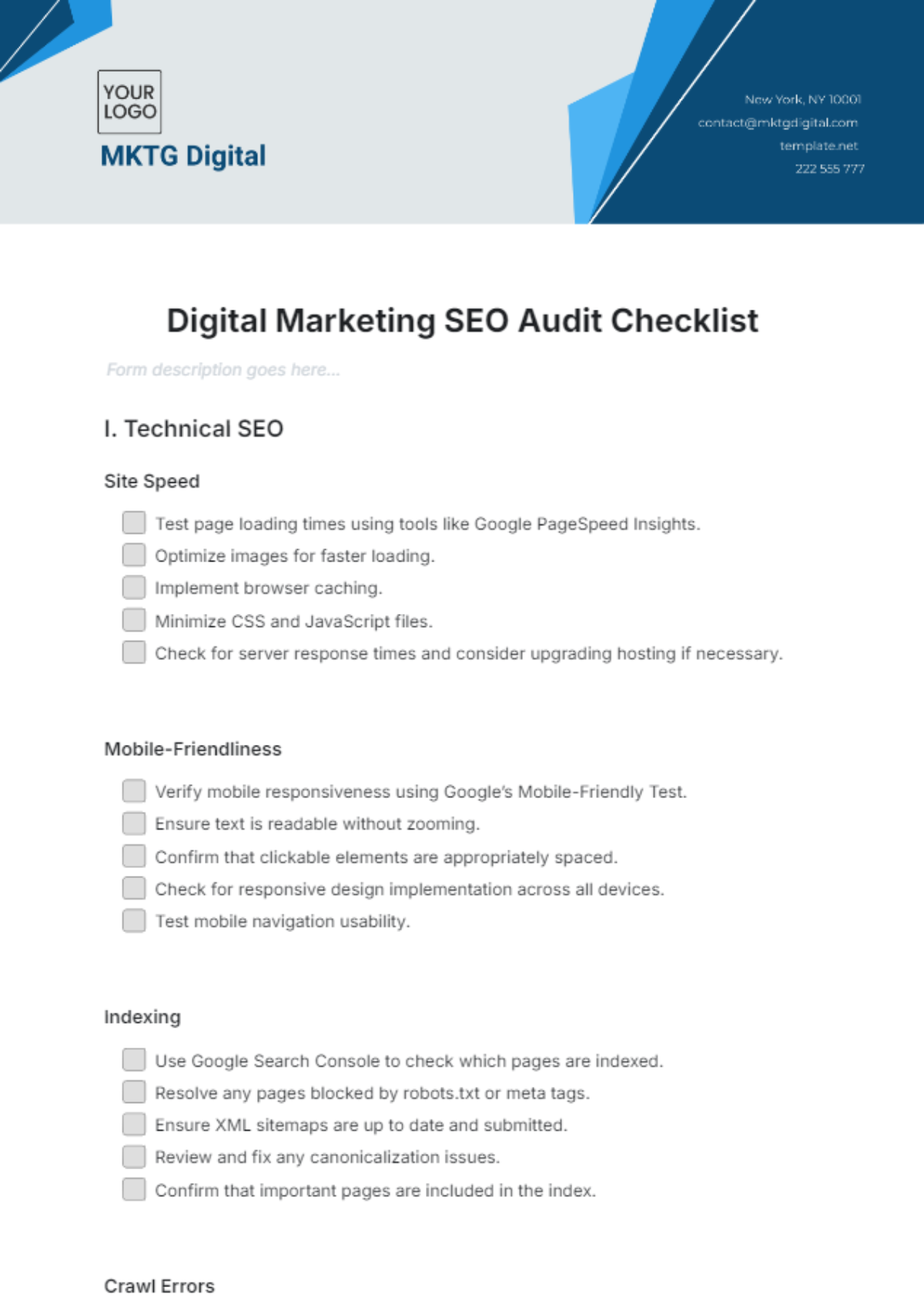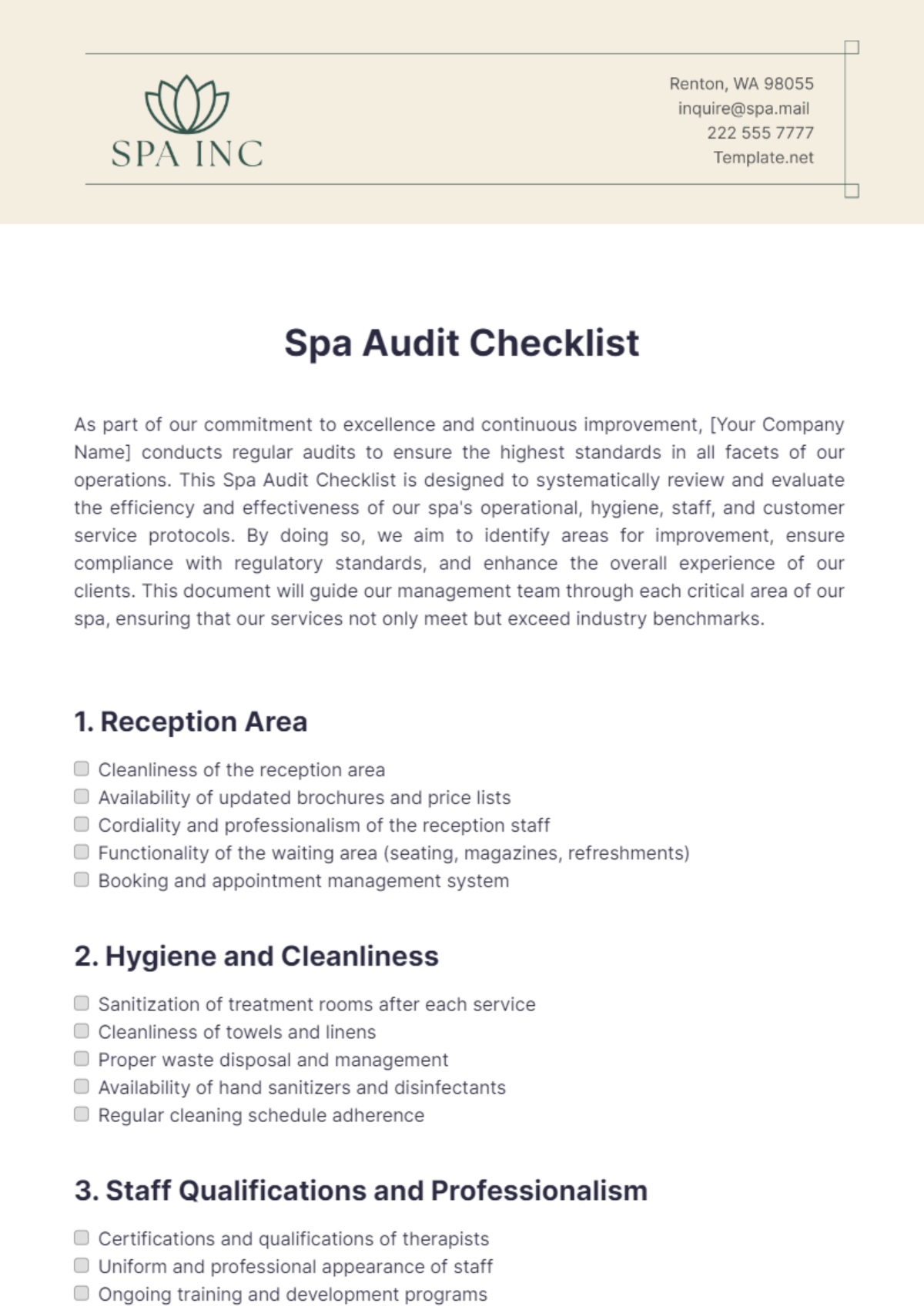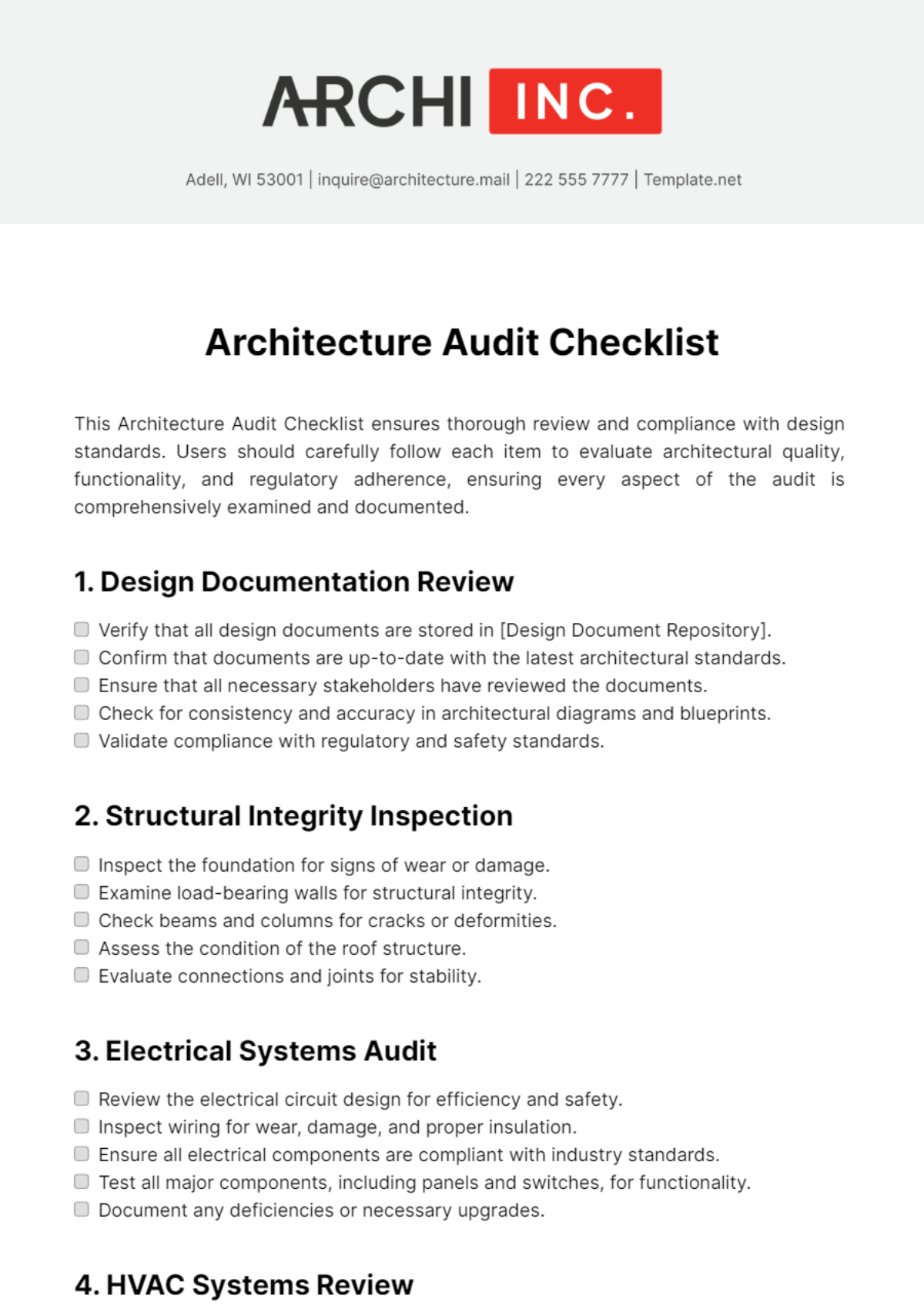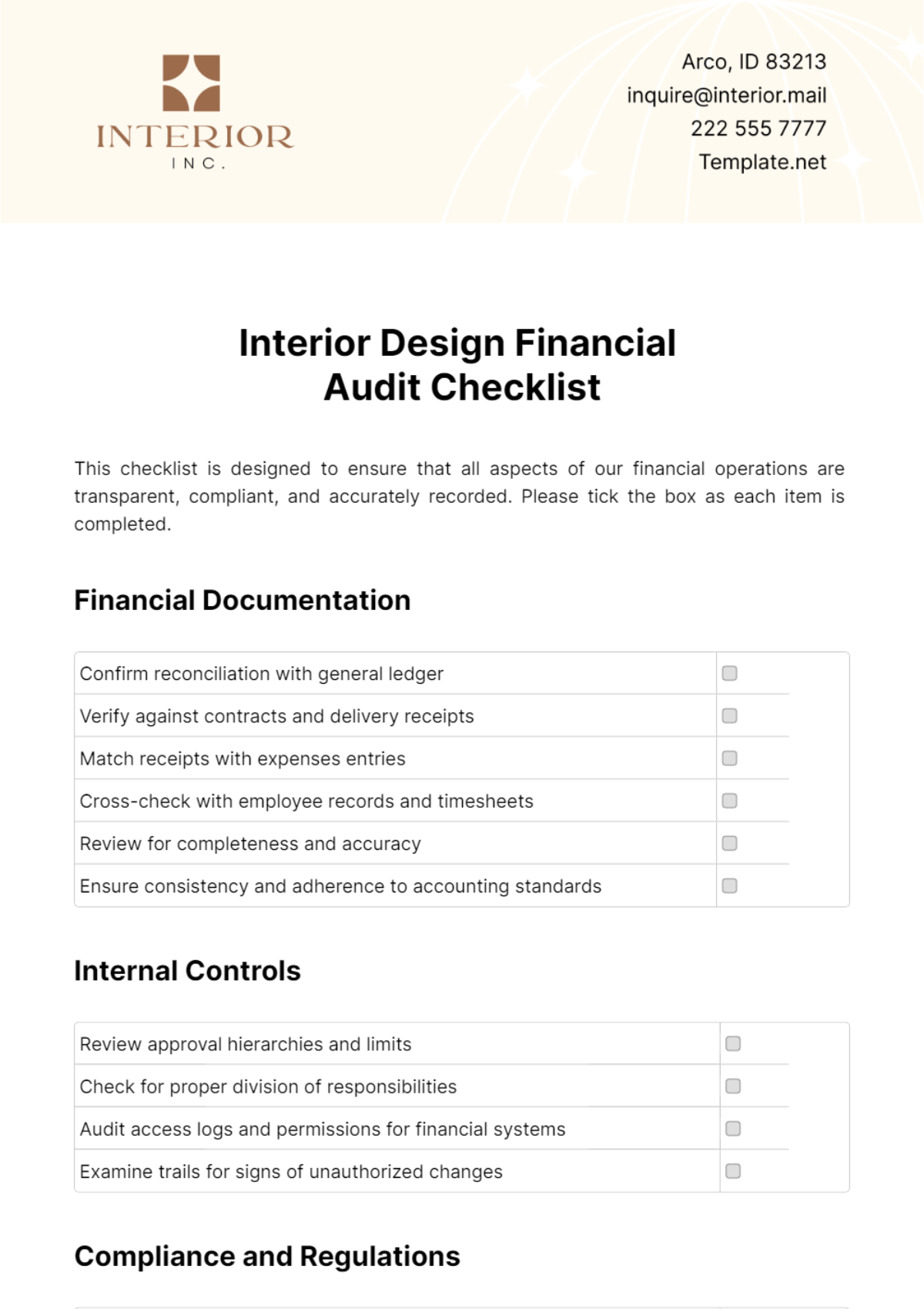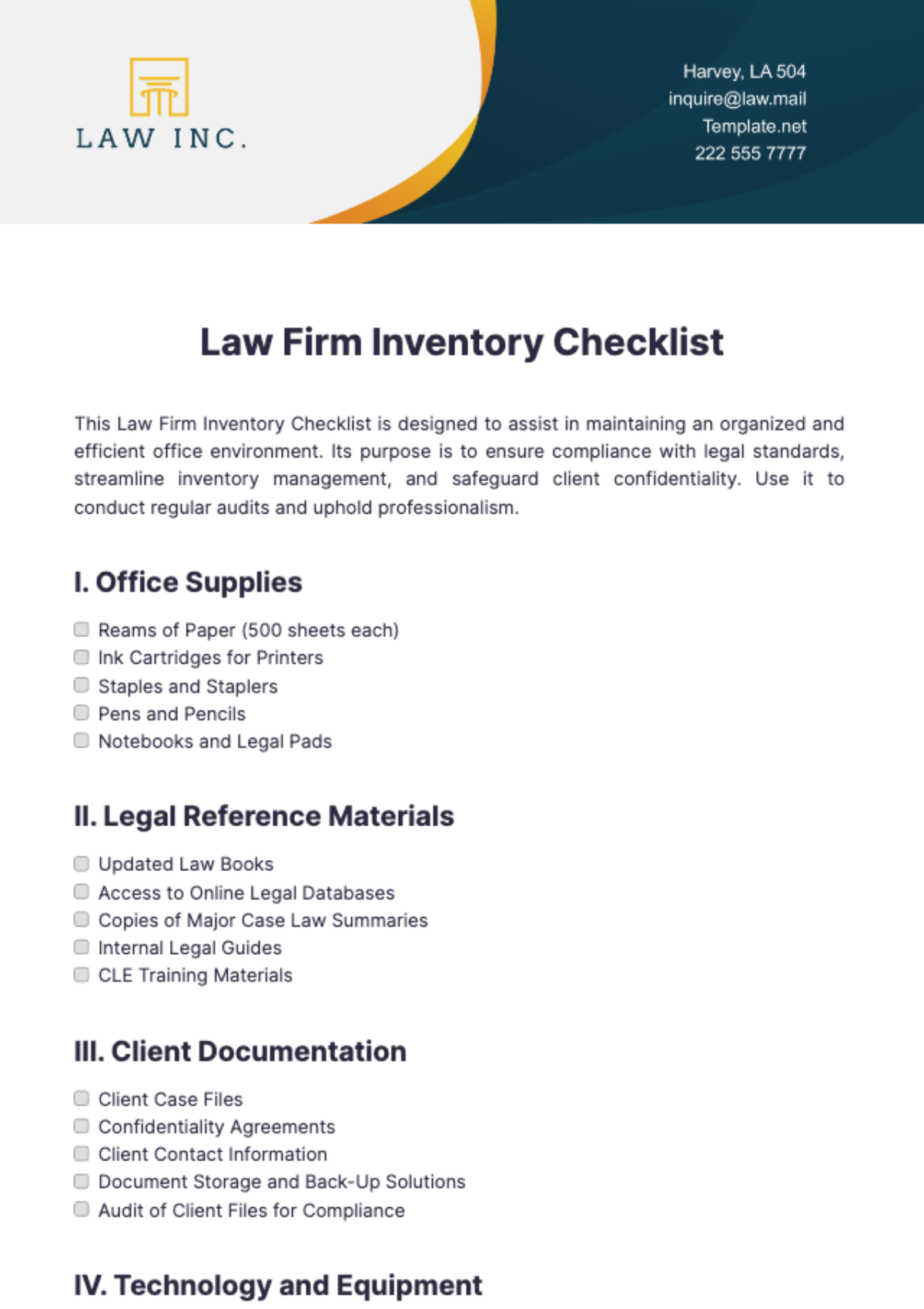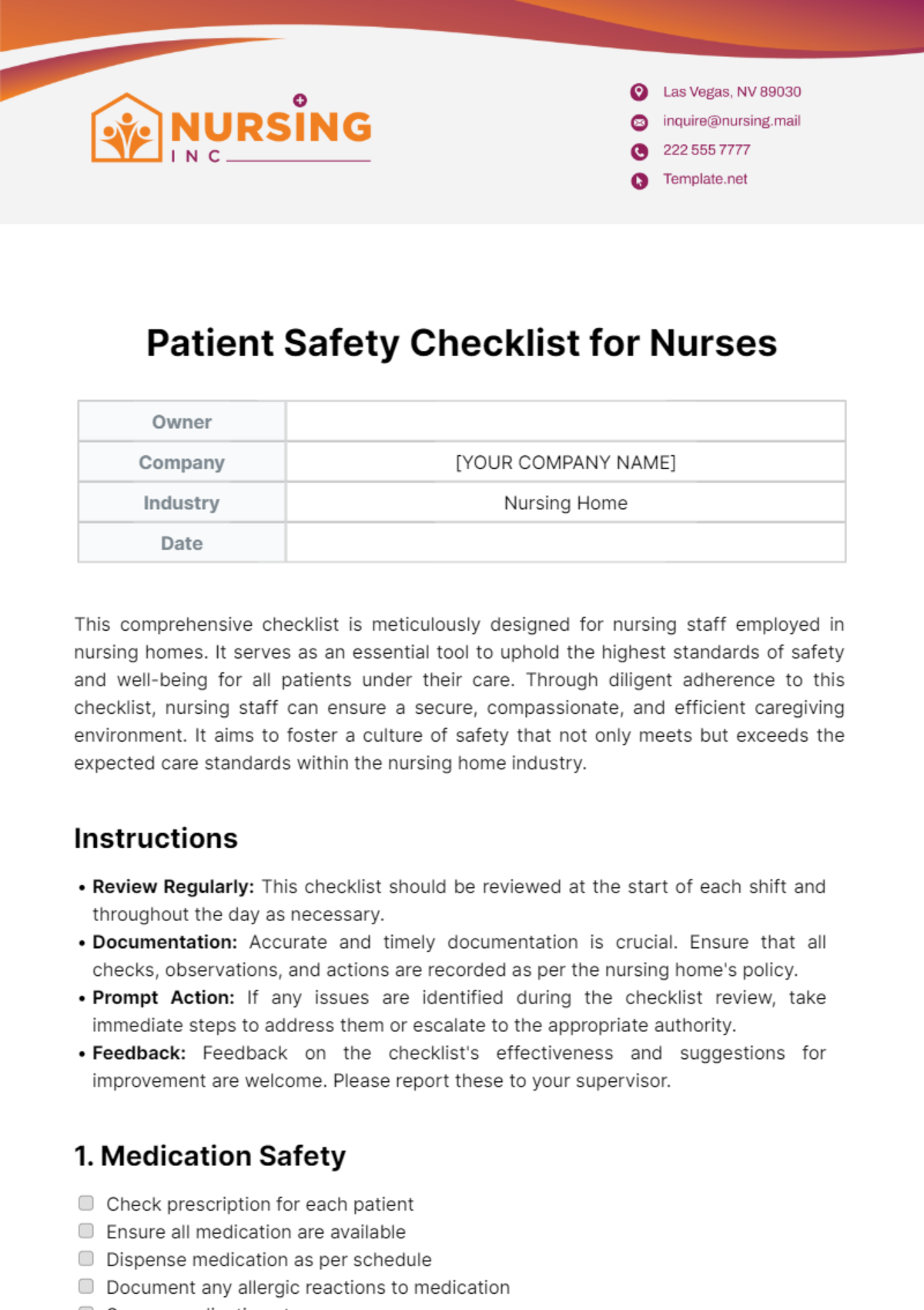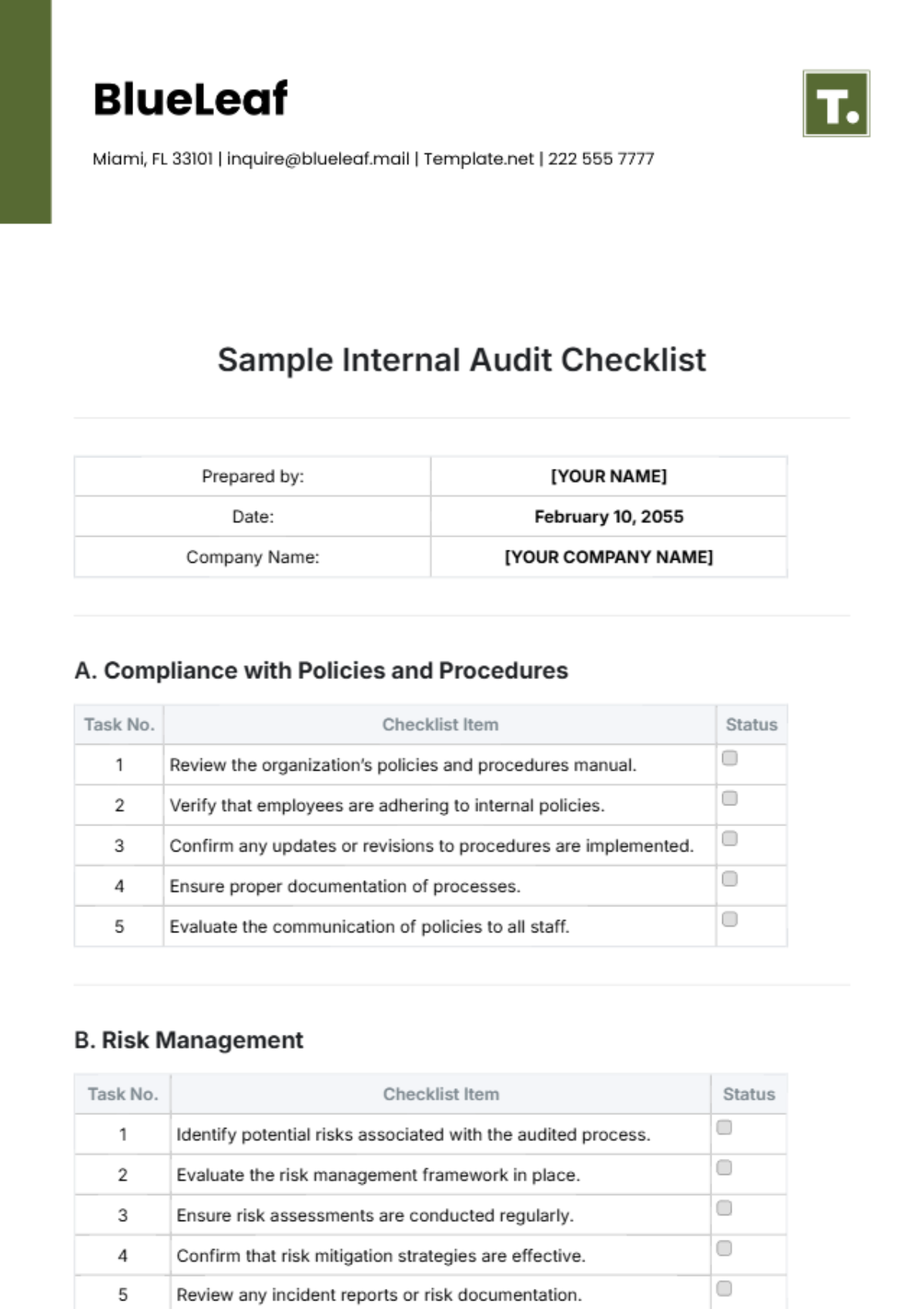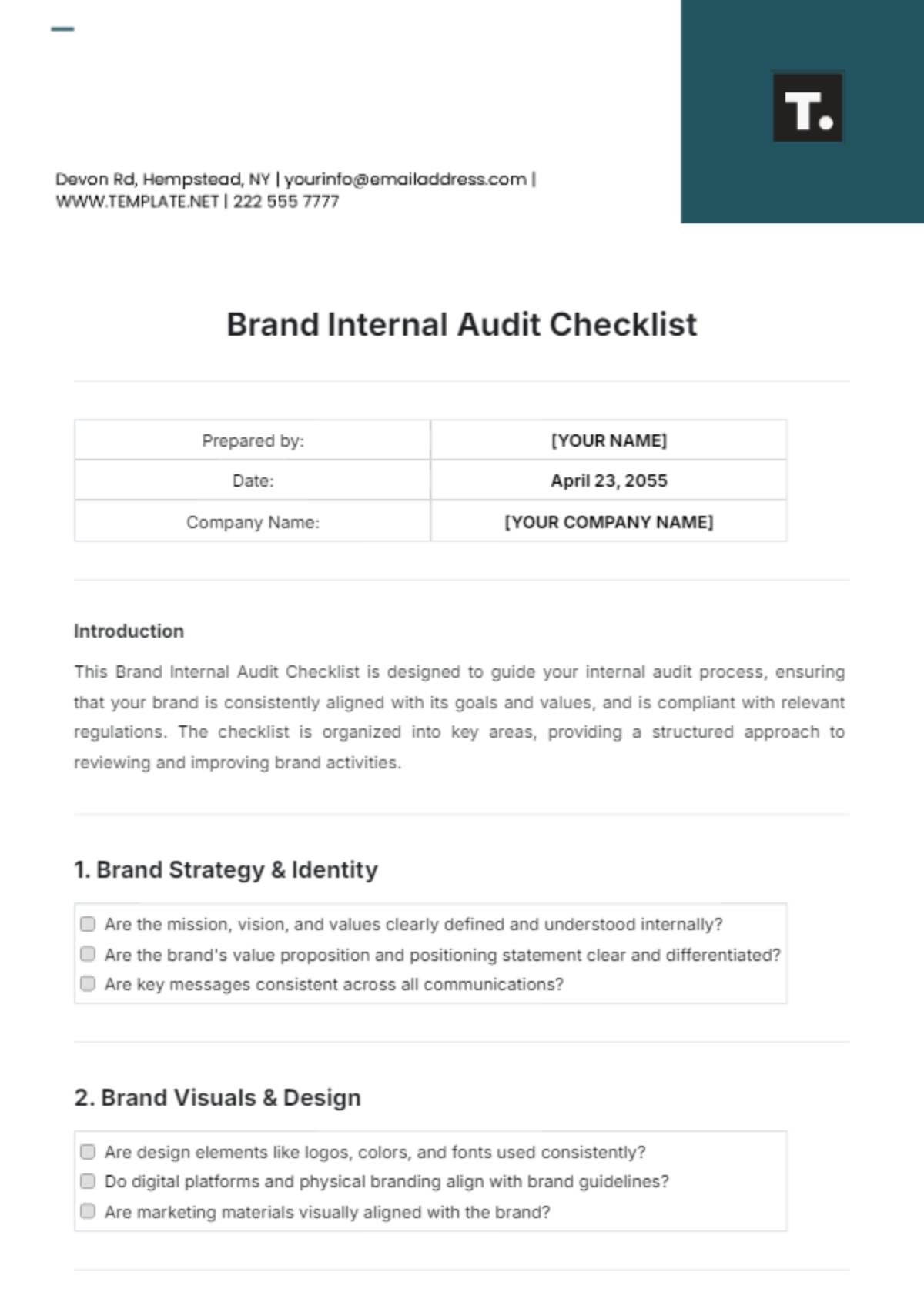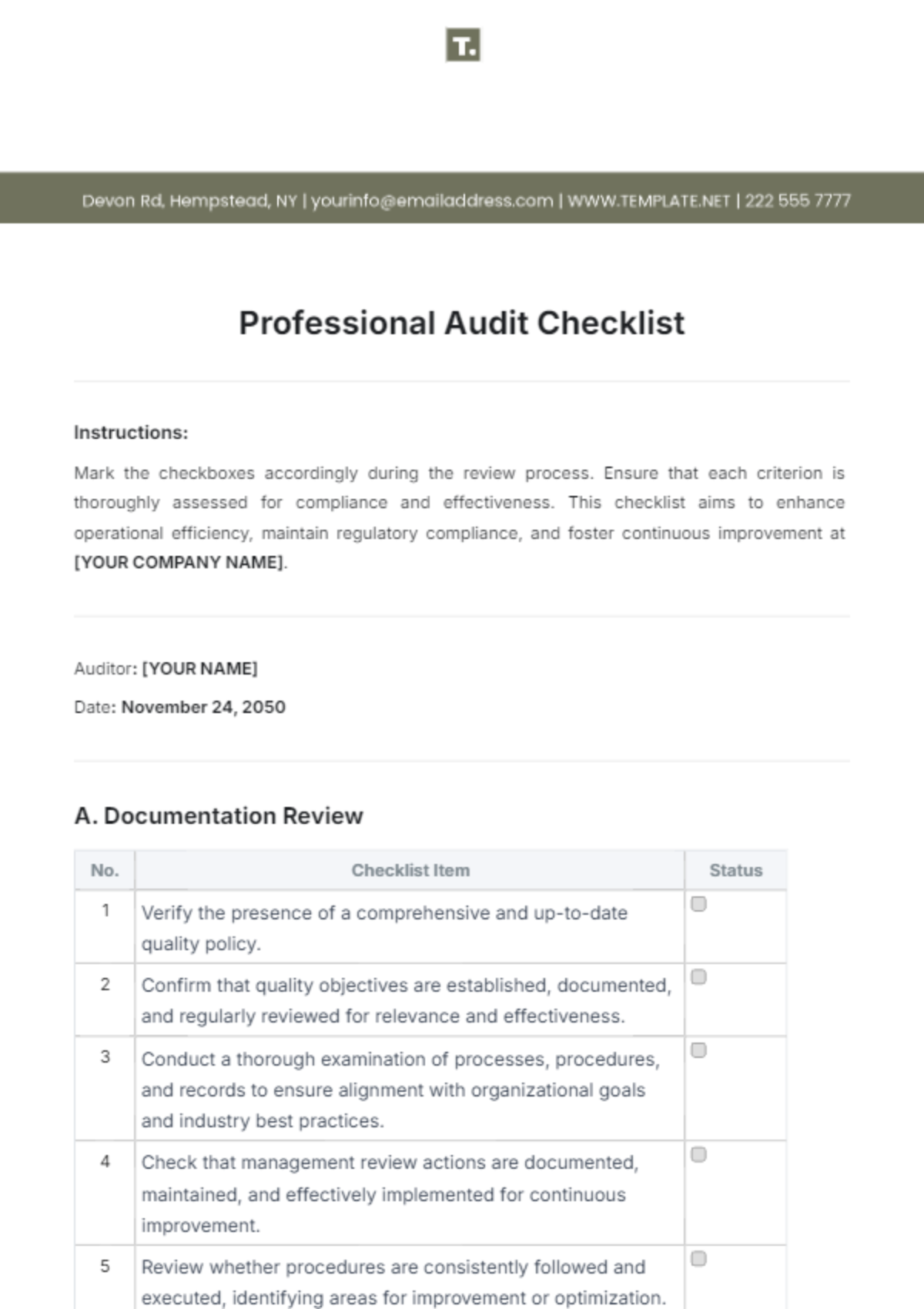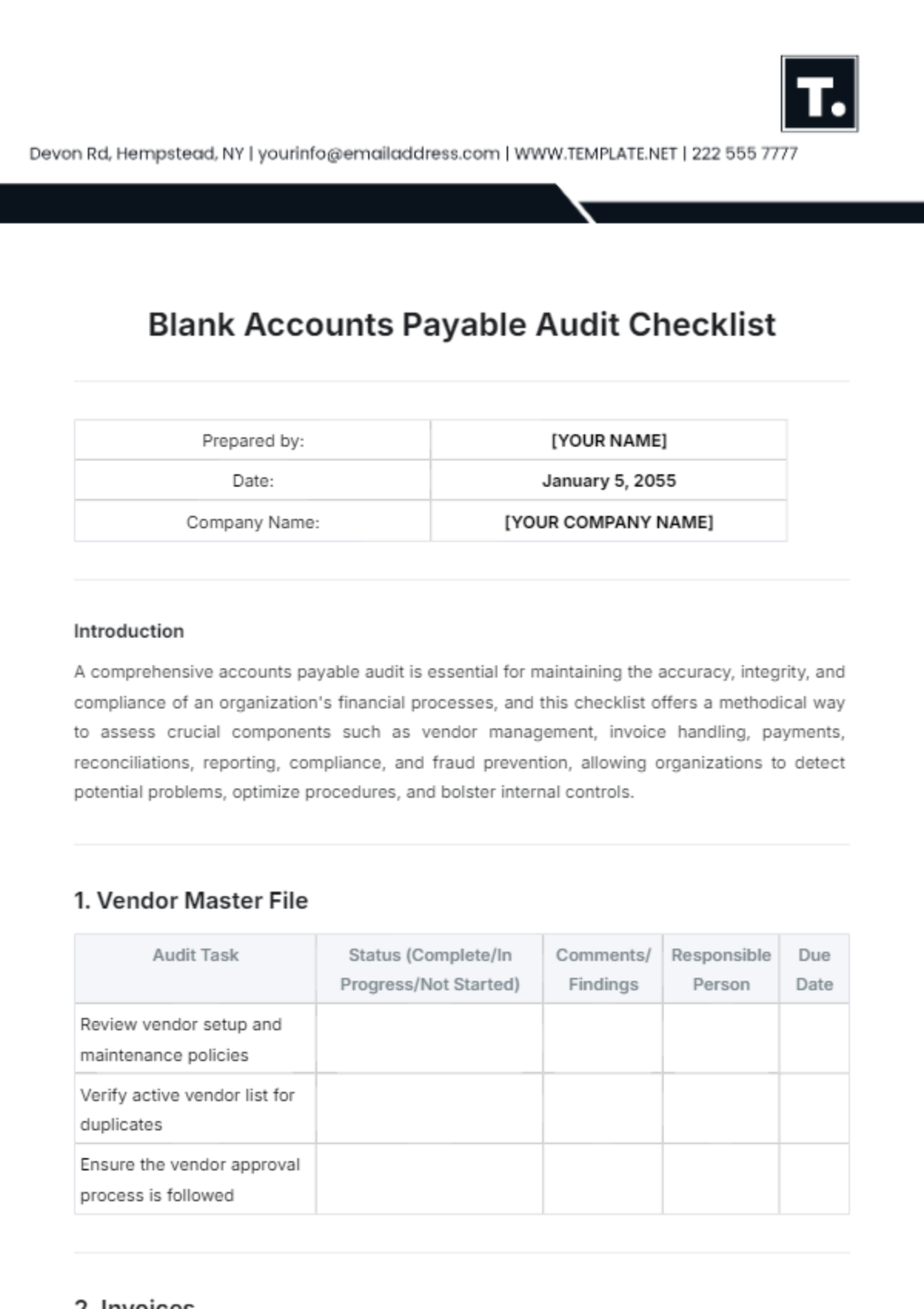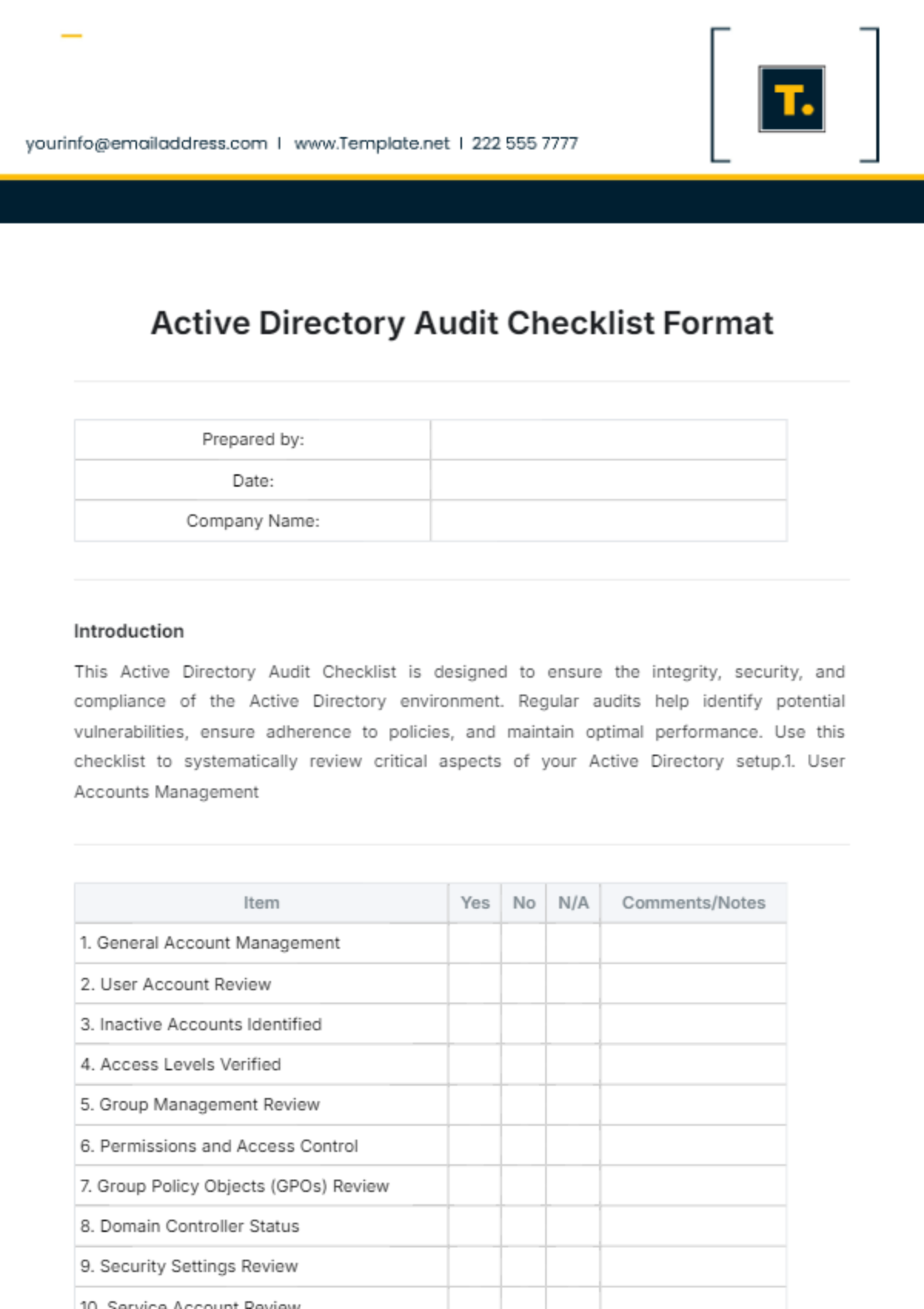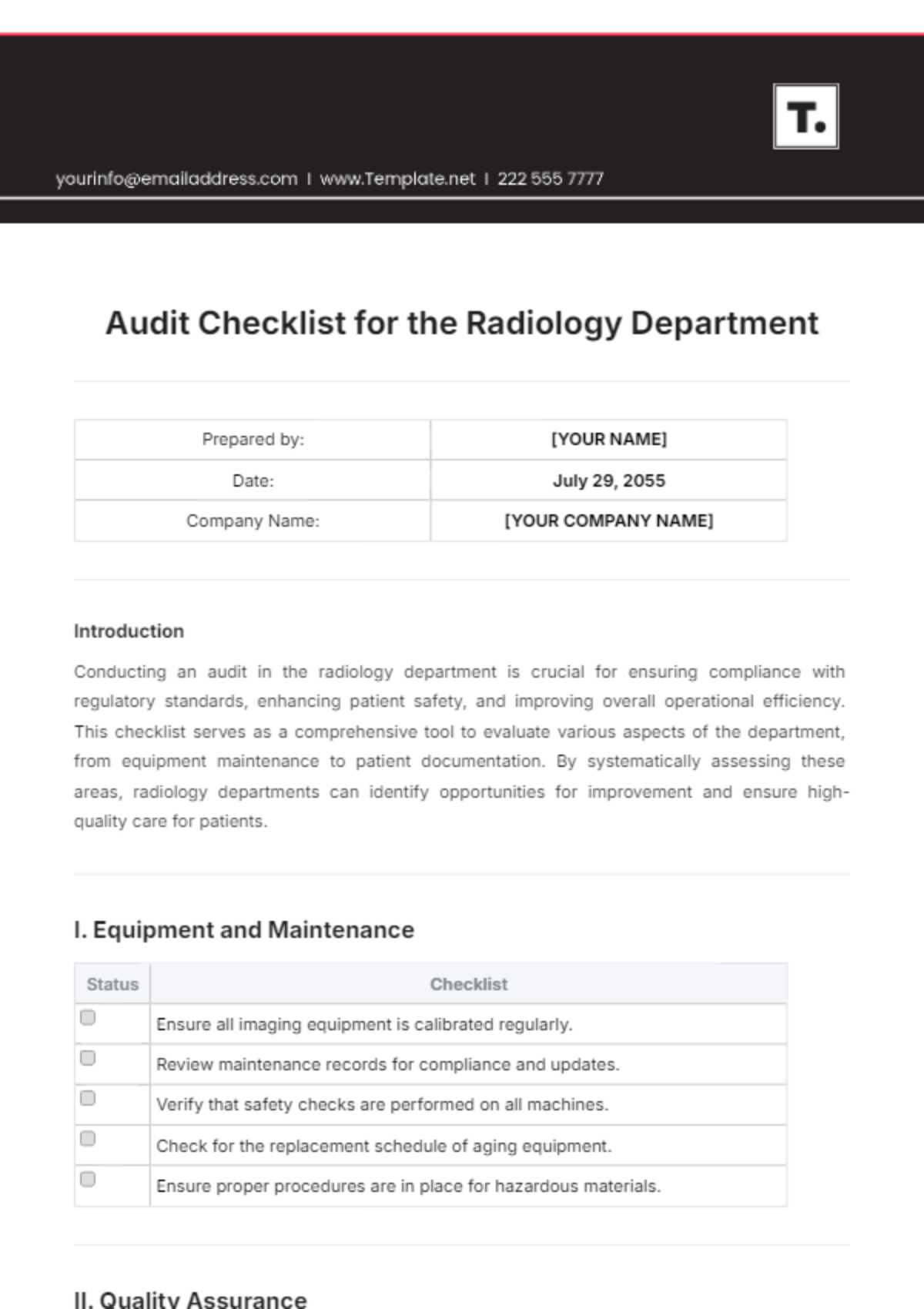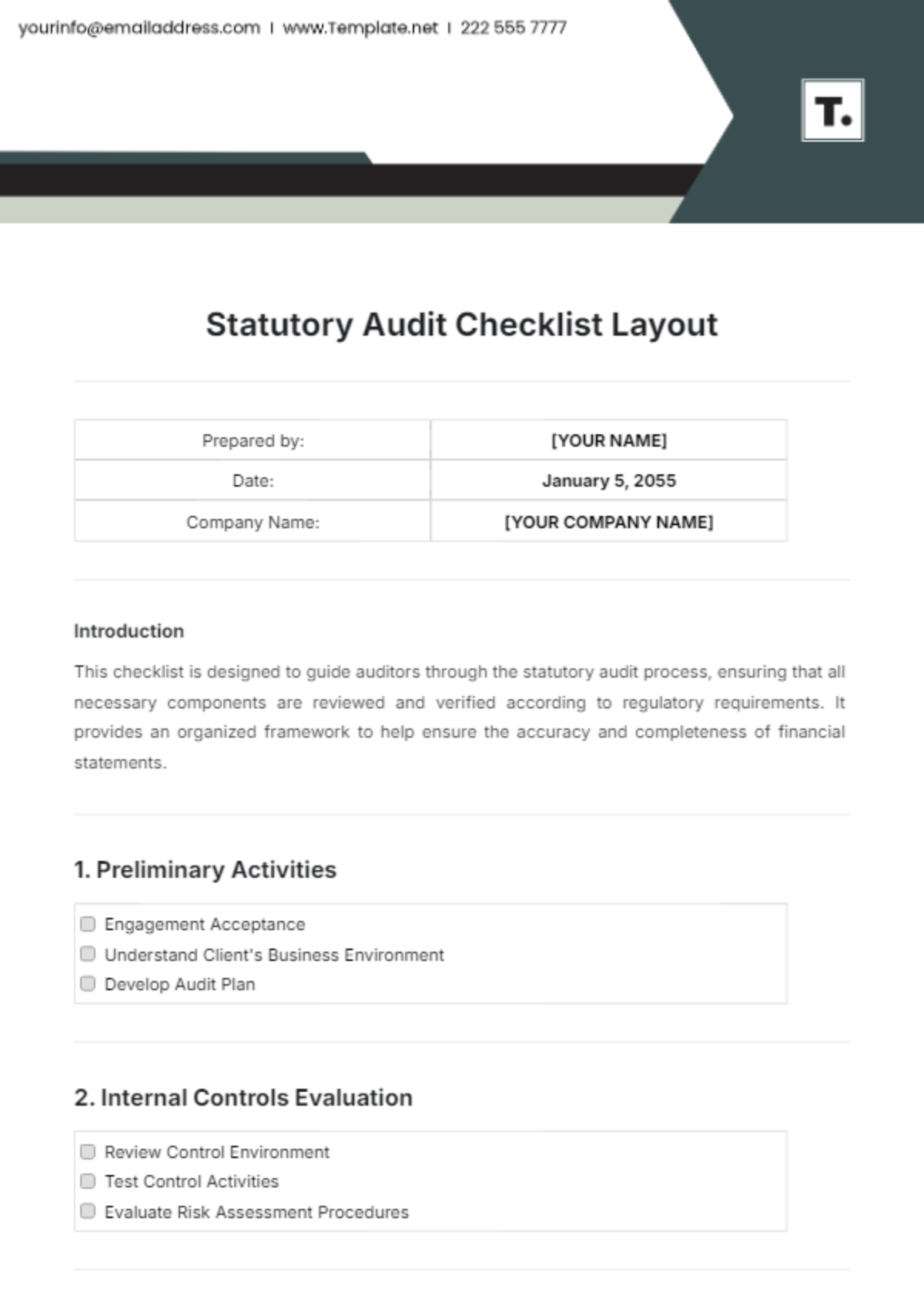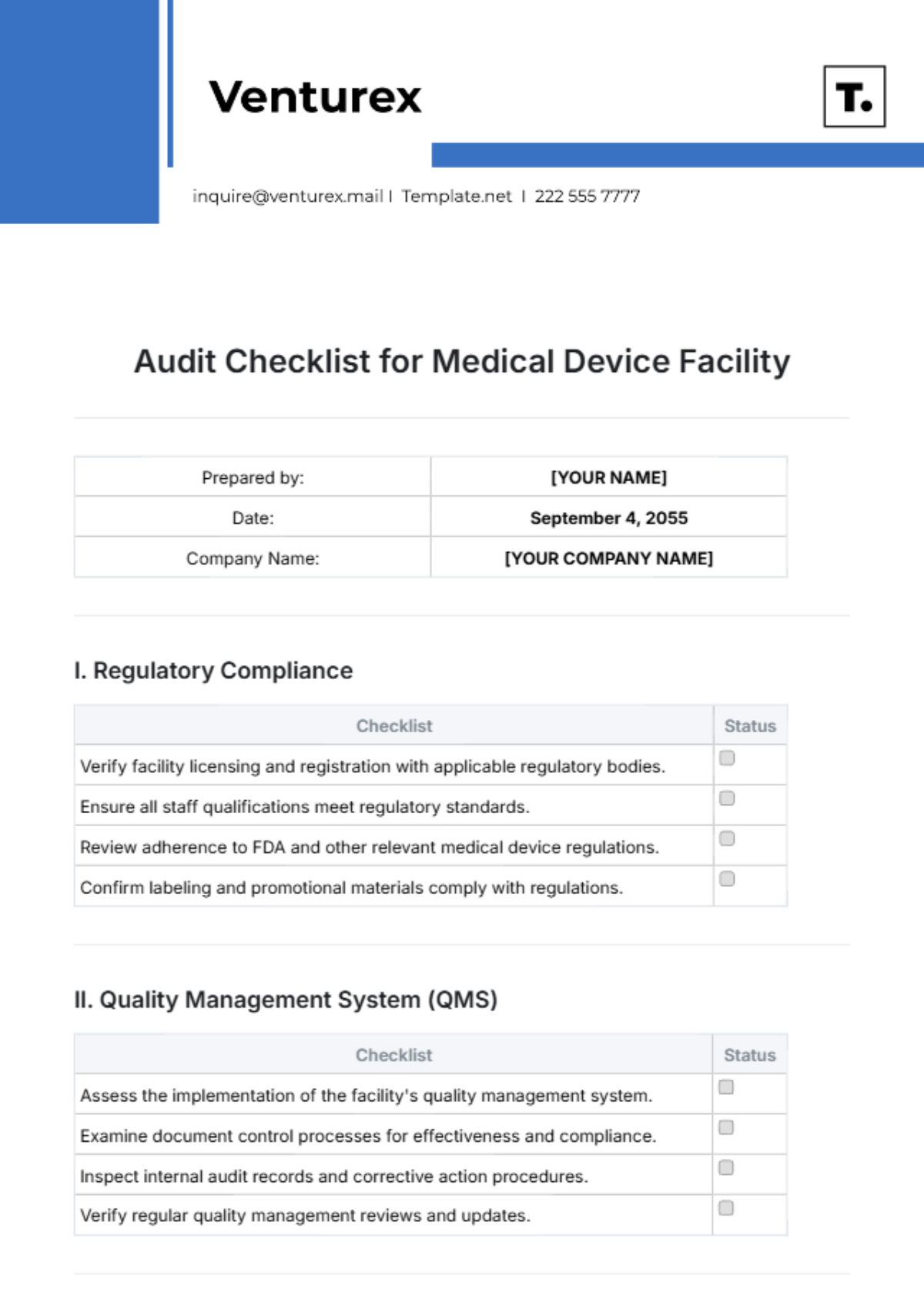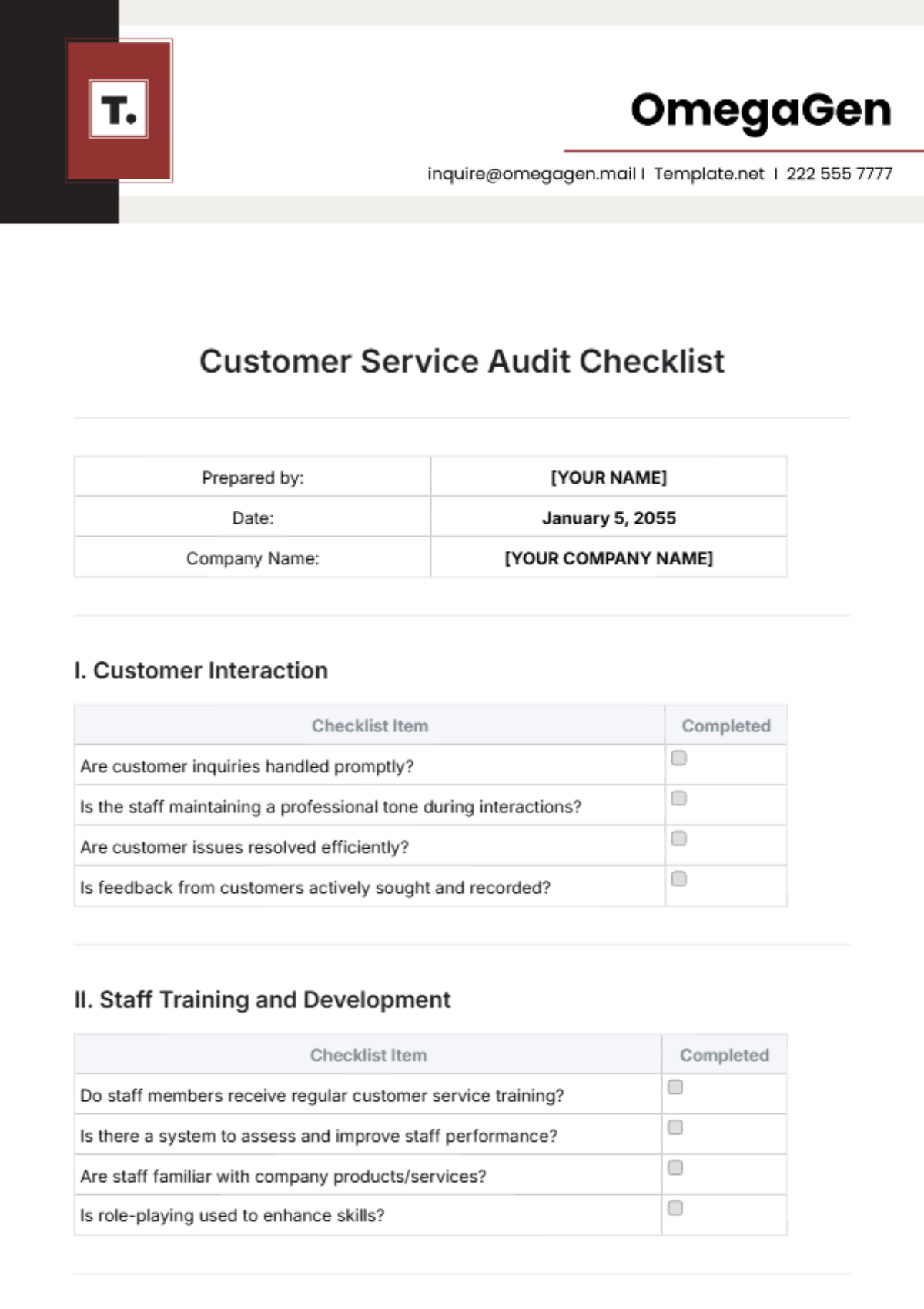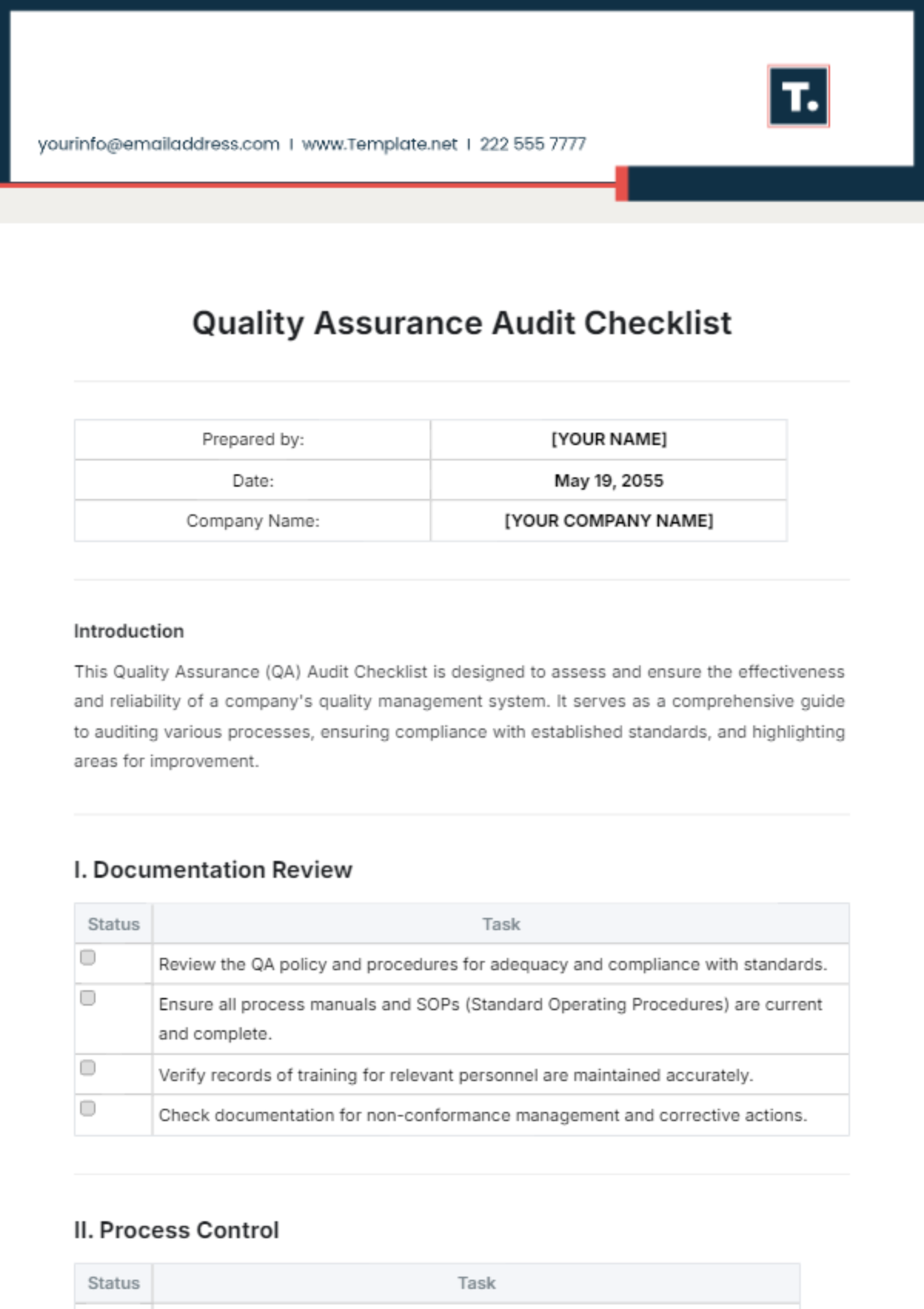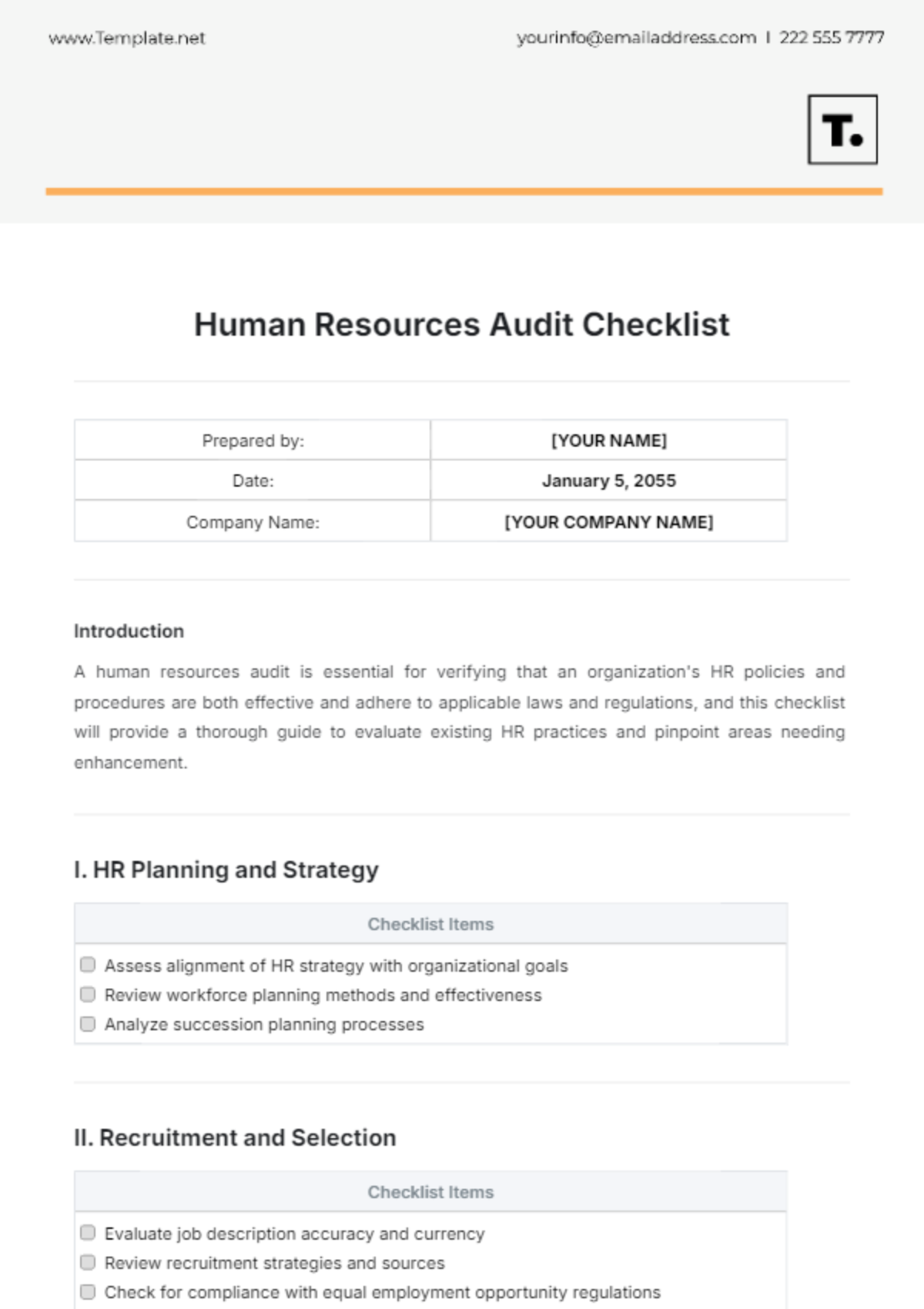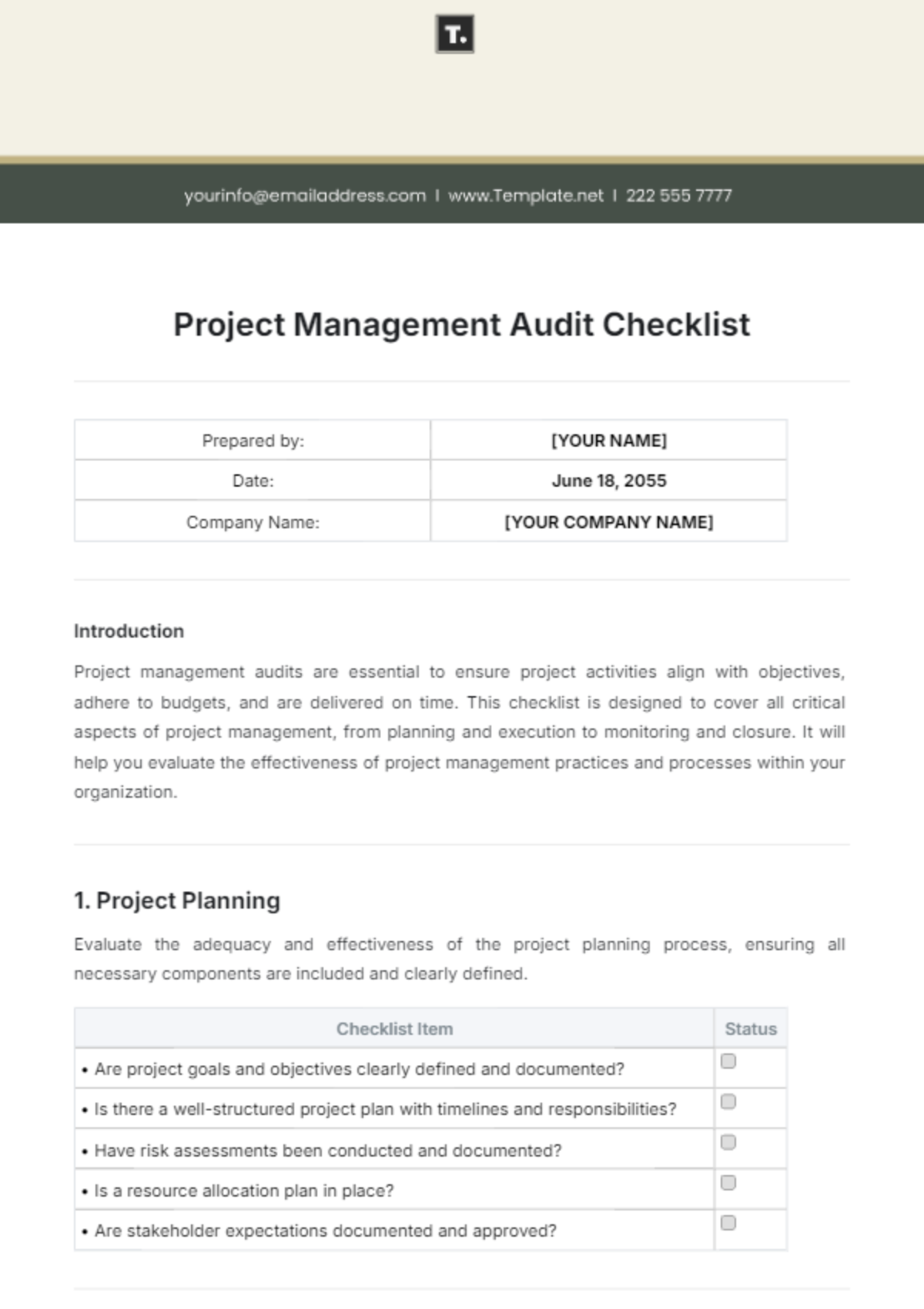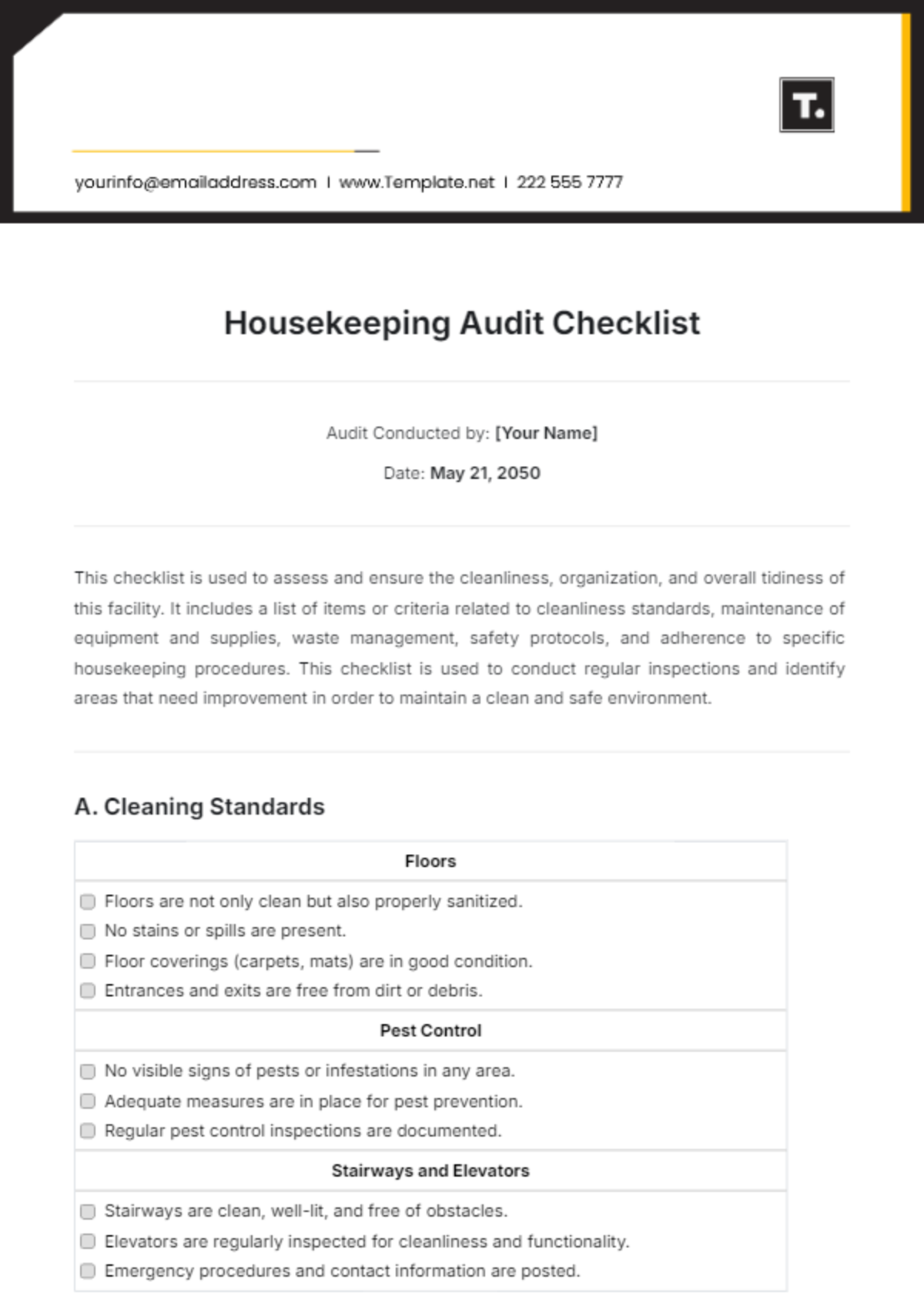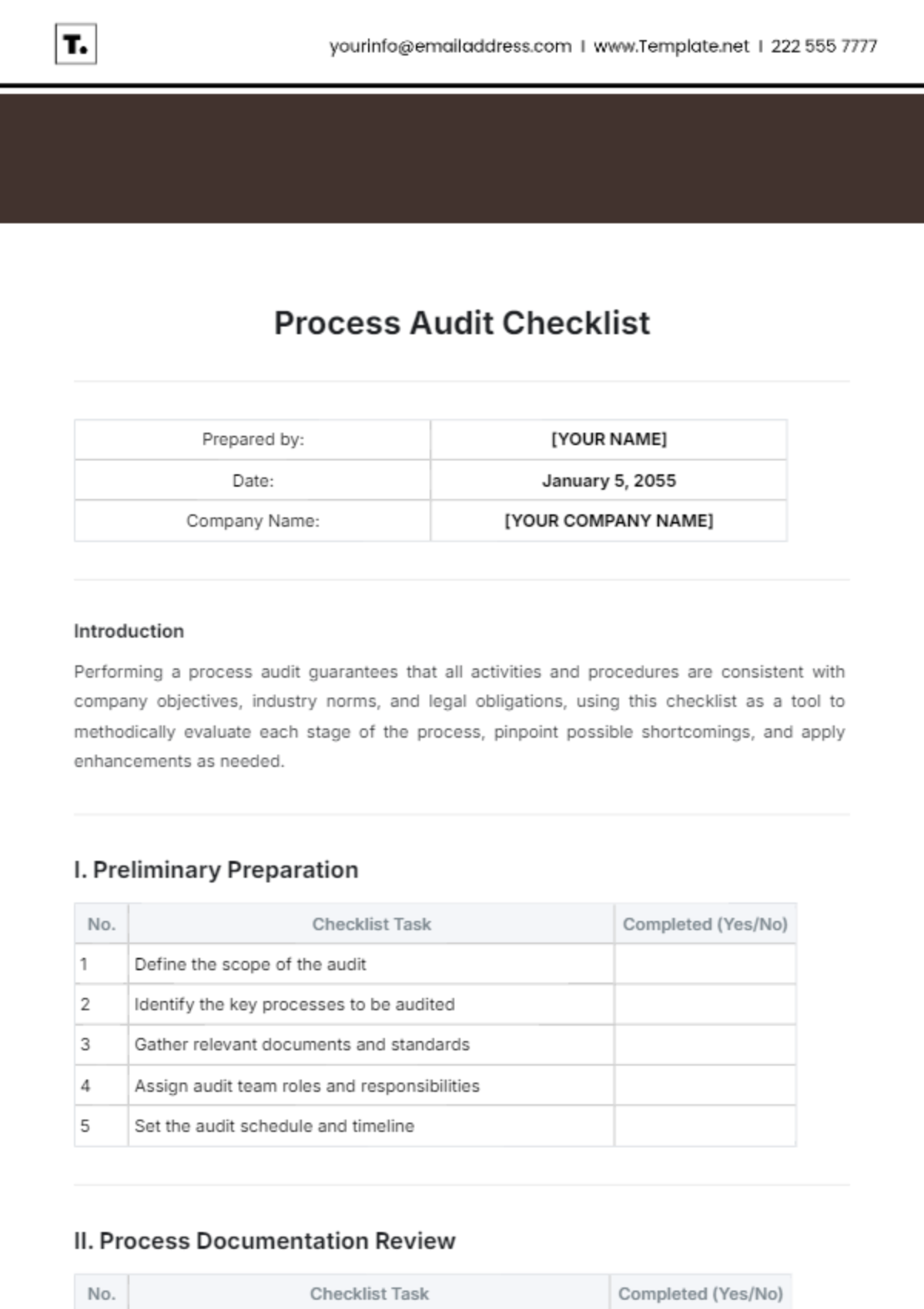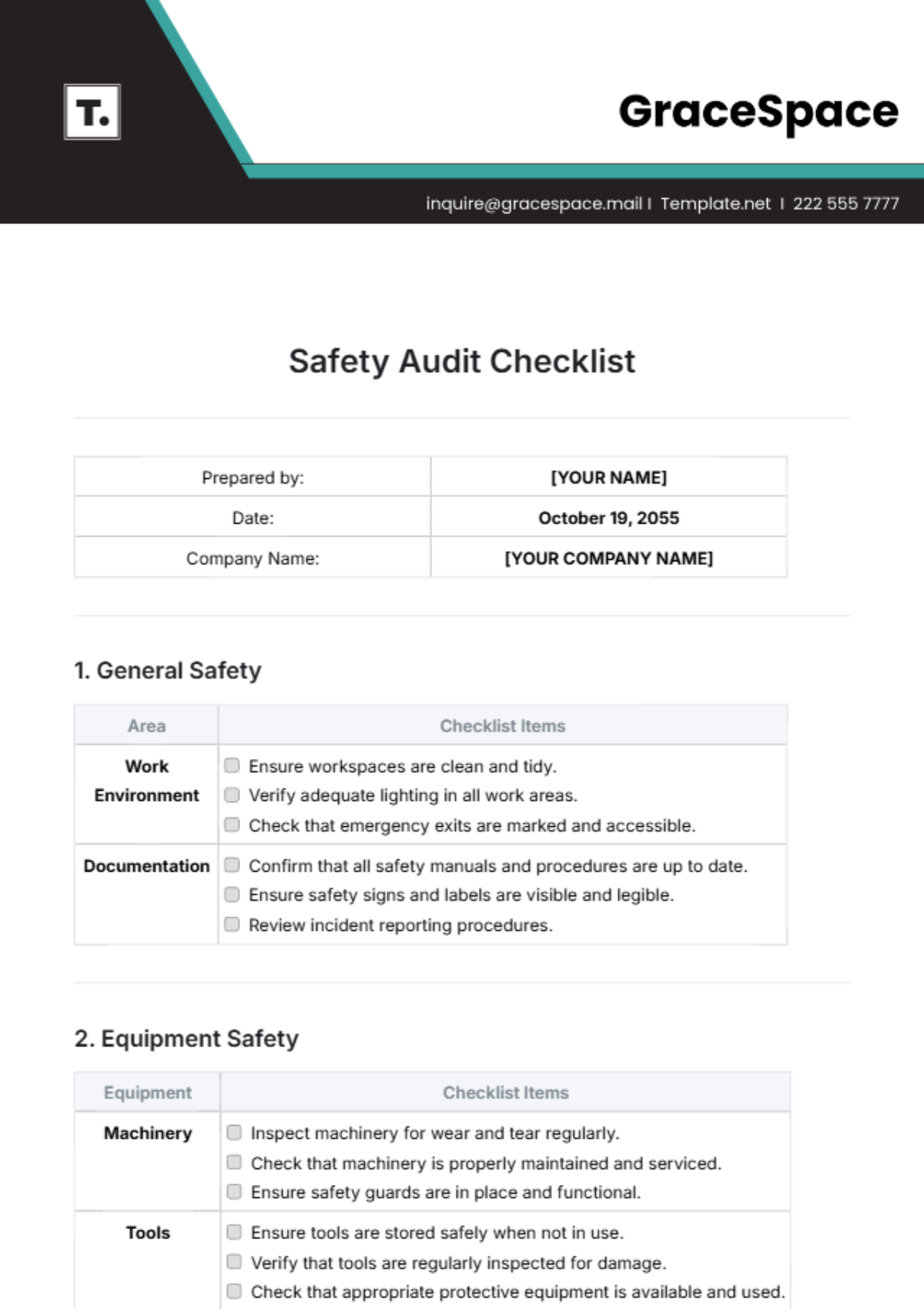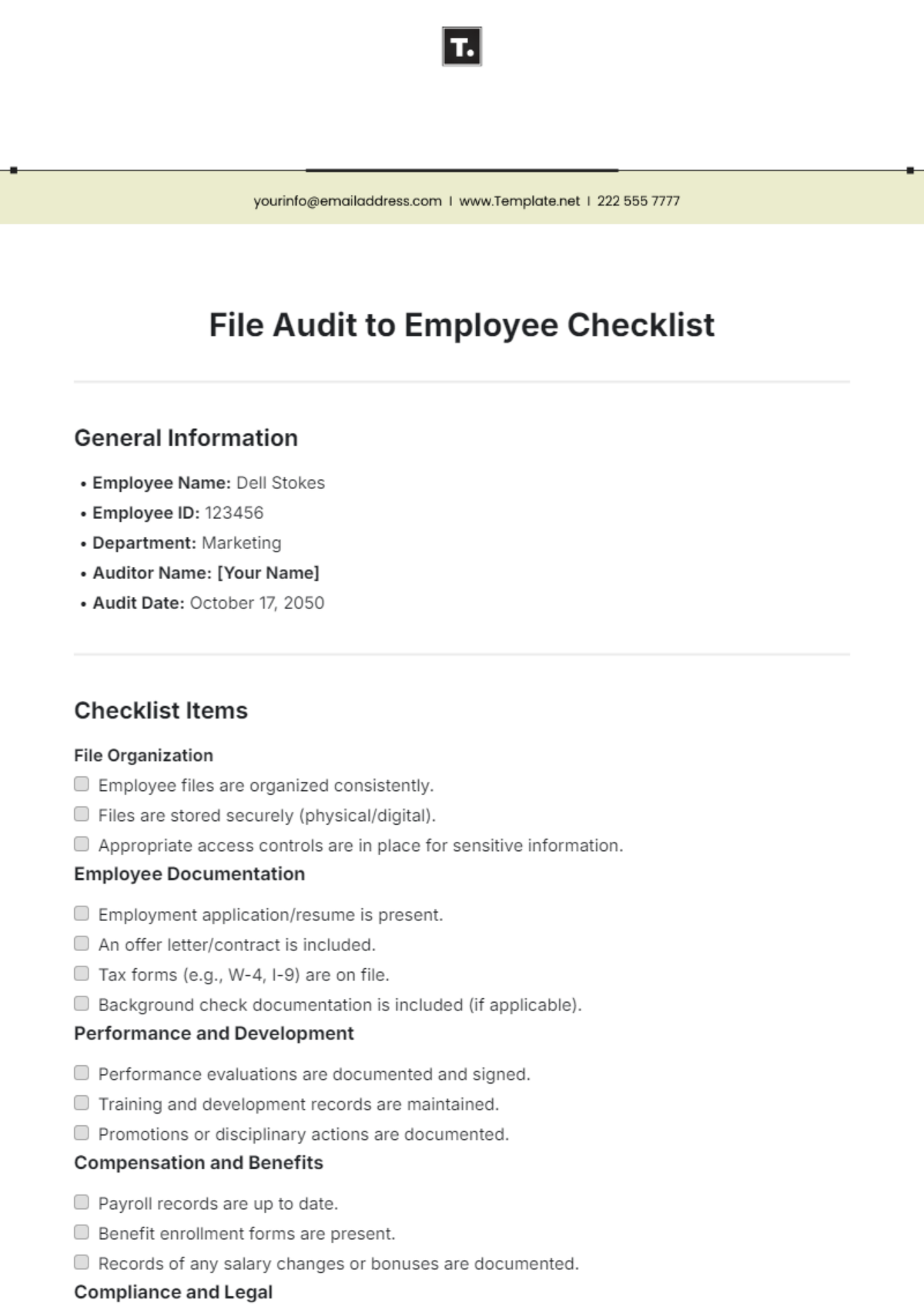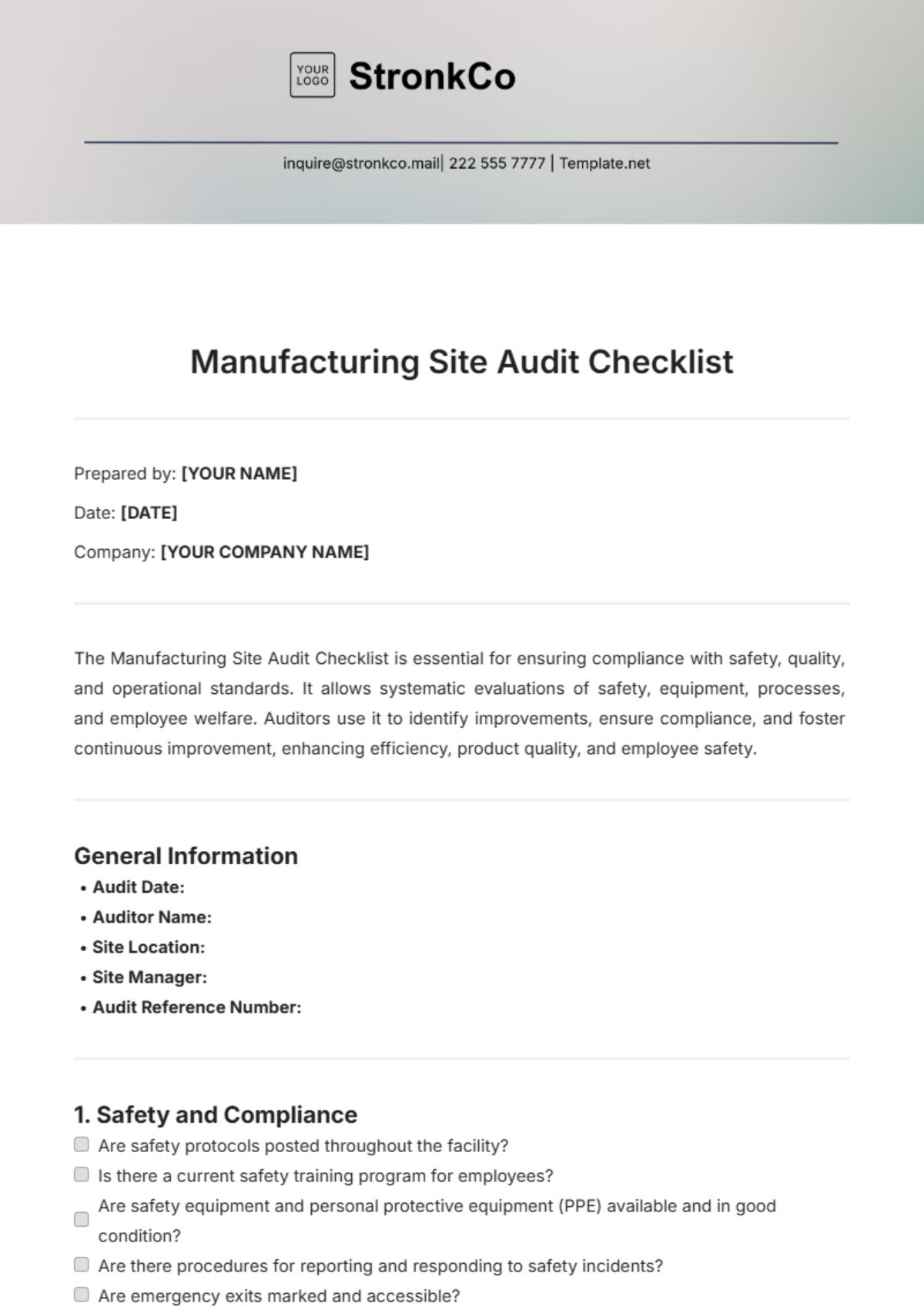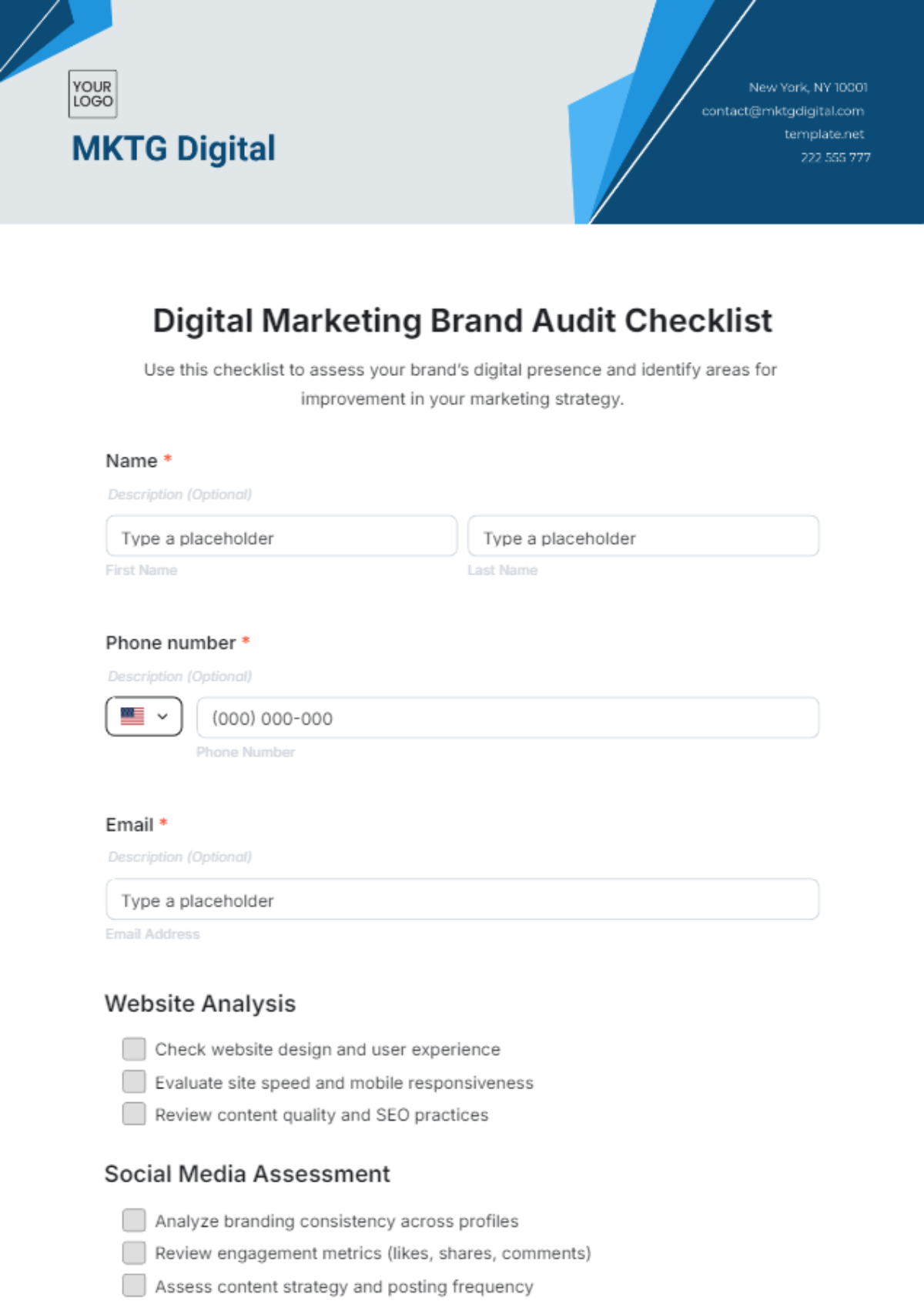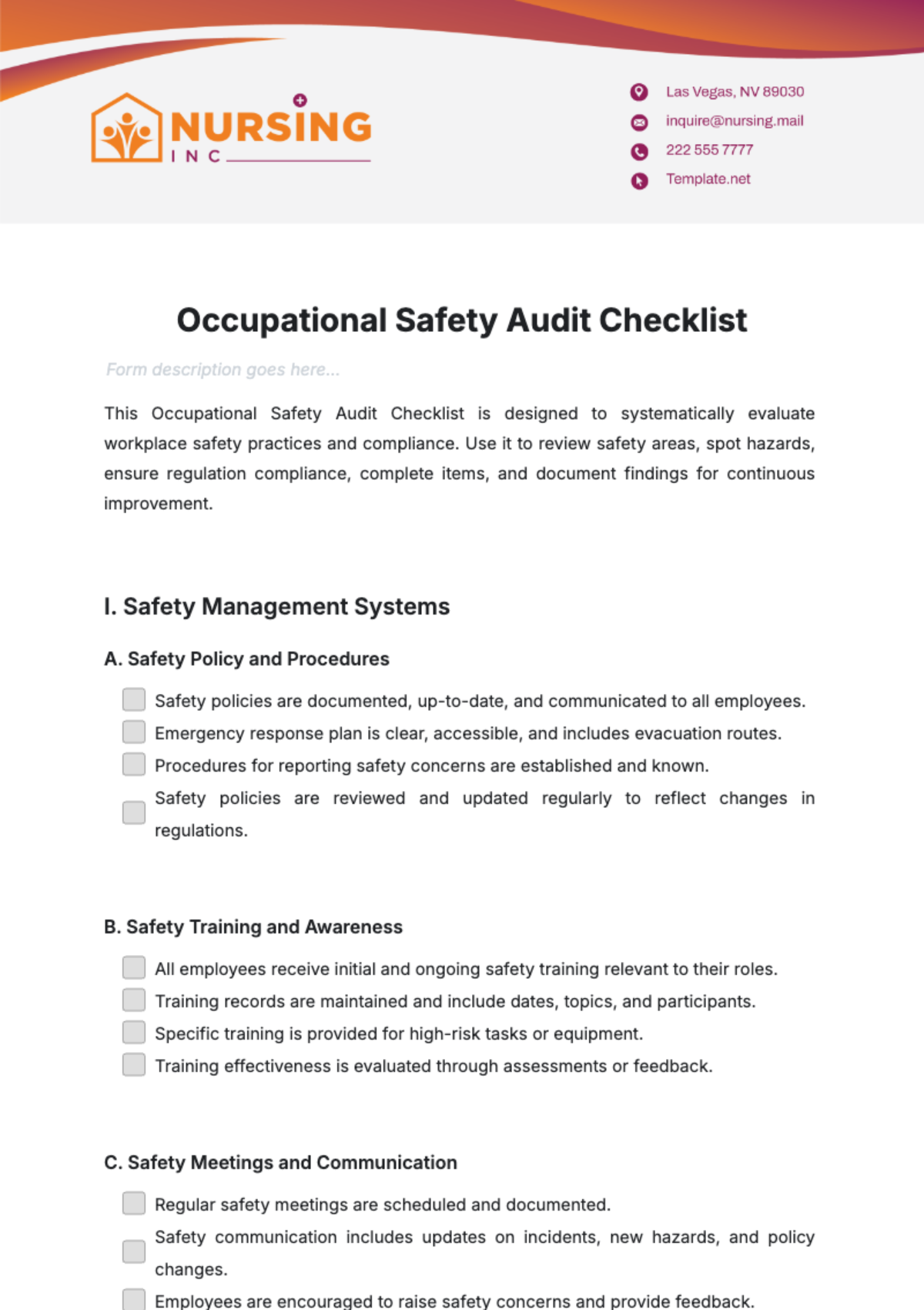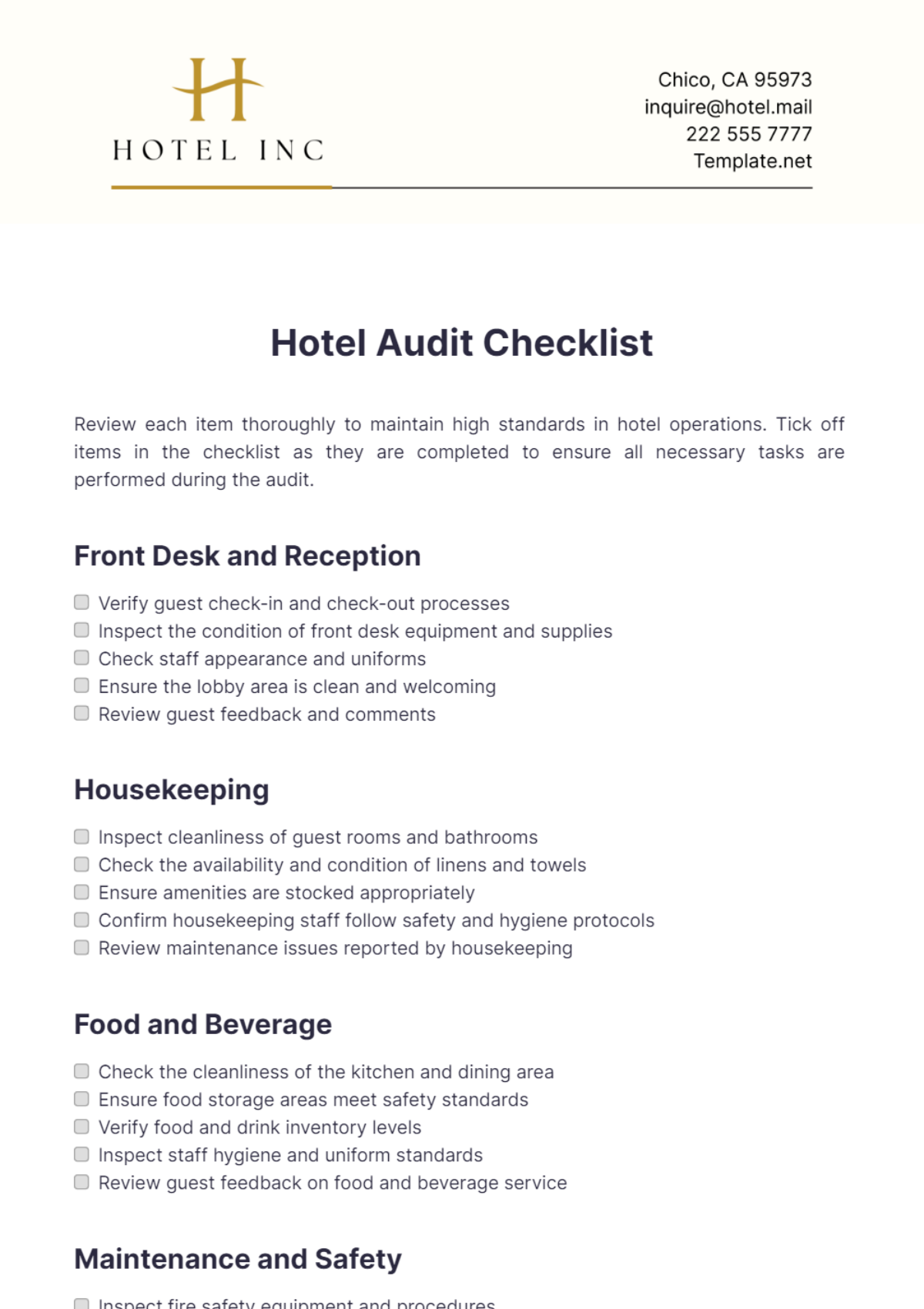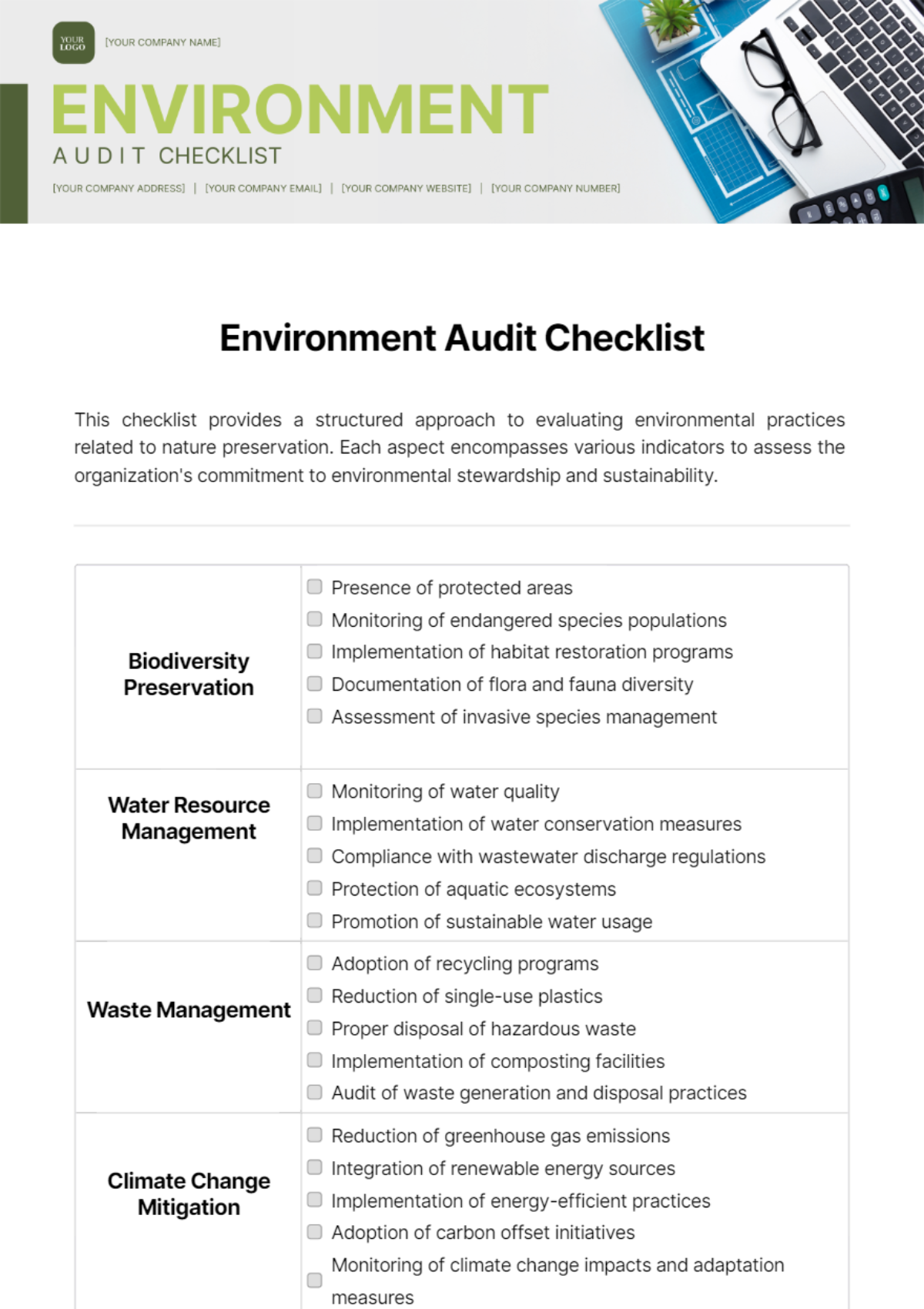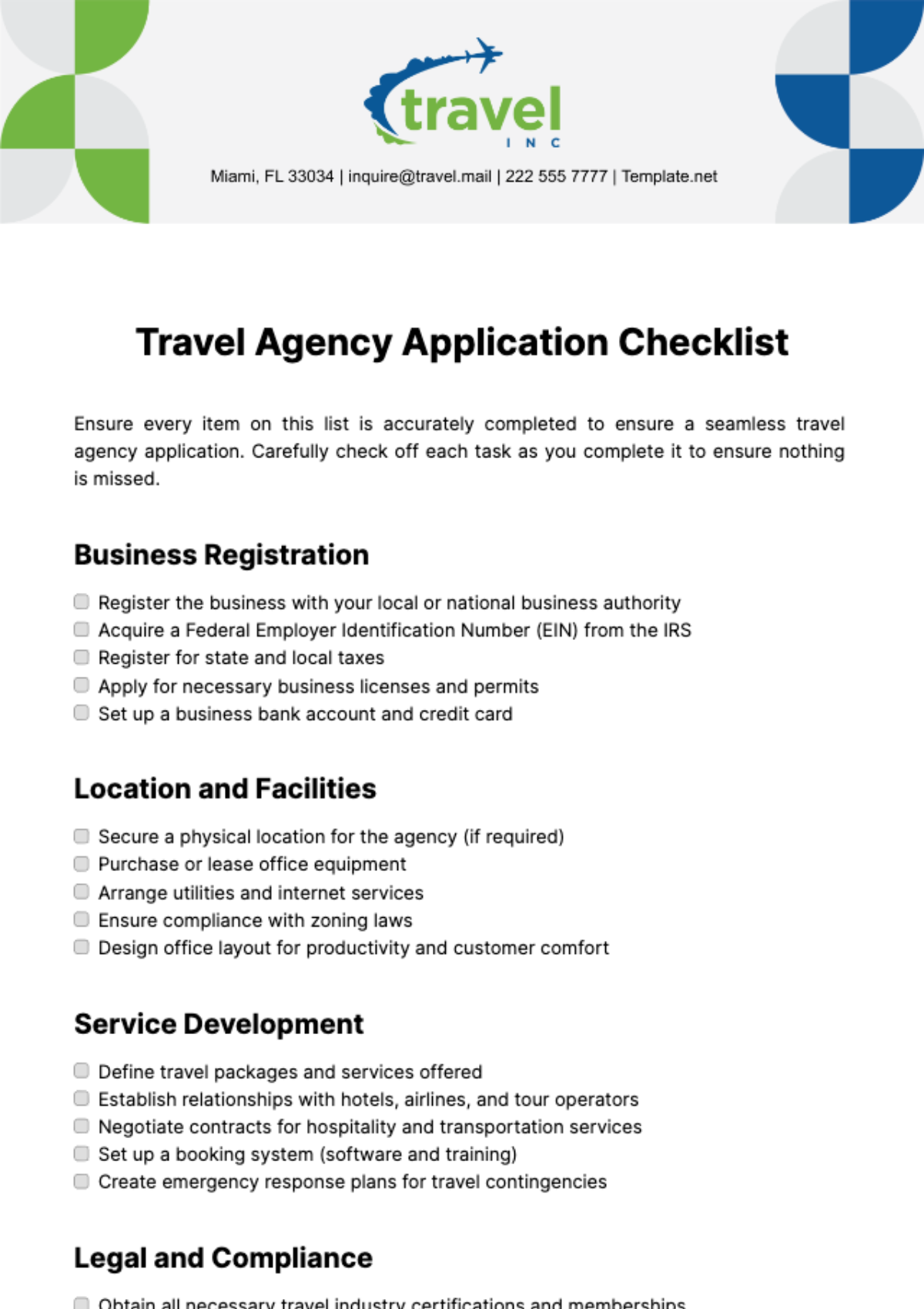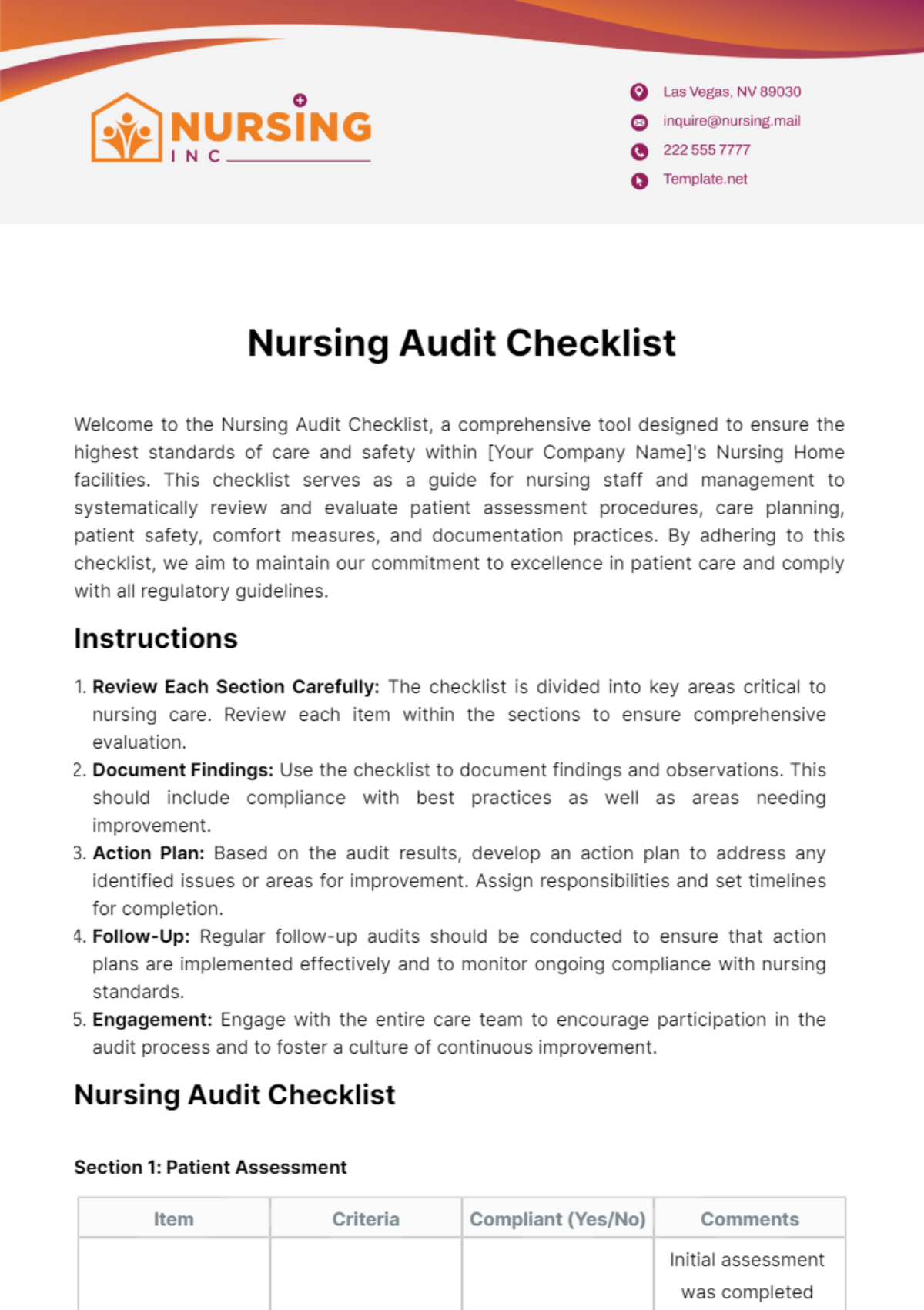Vendor Due Diligence Checklist
To ensure a robust assessment of potential vendors, follow this comprehensive Vendor Due Diligence Checklist. This checklist, designed as a guide, empowers you to make informed decisions, mitigating risks and fostering successful vendor relationships. The checklist is organized into key domains, providing a structured approach to evaluate vendors effectively.
Company: | [YOUR COMPANY NAME] |
Completed by: | [YOUR NAME] |
Vendor: | Lyda Fadel |
Date of Completion: | January 12, 2050 |
Legal and Regulatory Compliance:
Initiate the due diligence process by examining the vendor's legal and regulatory compliance.
Verify the validity of their business licenses and permits, ensuring they are authorized to operate.
Scrutinize regulatory compliance documentation to confirm adherence to industry standards. Investigate the vendor's litigation history to assess potential legal risks.
Financial Stability:
Evaluate the vendor's financial stability to ascertain their capability to fulfill contractual obligations.
Review audited financial statements to understand their financial health.
Obtain credit reports to gauge creditworthiness and identify any financial red flags.
Seek references from their banking institutions to corroborate their financial standing.
Operational Performance:
Assess the vendor's operational performance by reviewing service level agreements (SLAs) and ensuring alignment with our requirements.
Scrutinize their performance history to identify patterns and trends.
Evaluate their capacity and scalability to ensure they can accommodate our current and future needs.
Security and Data Protection:
Examine the vendor's security measures and data protection protocols.
Evaluate their information security policies to ensure the confidentiality and integrity of our data.
Scrutinize data protection measures and cybersecurity practices to mitigate potential security risks.
Quality Assurance:
Ensure the vendor meets our quality standards.
Assess certifications and accreditations to validate their commitment to quality.
Seek customer satisfaction references to gain insights into their reputation and the satisfaction levels of their existing clients.
